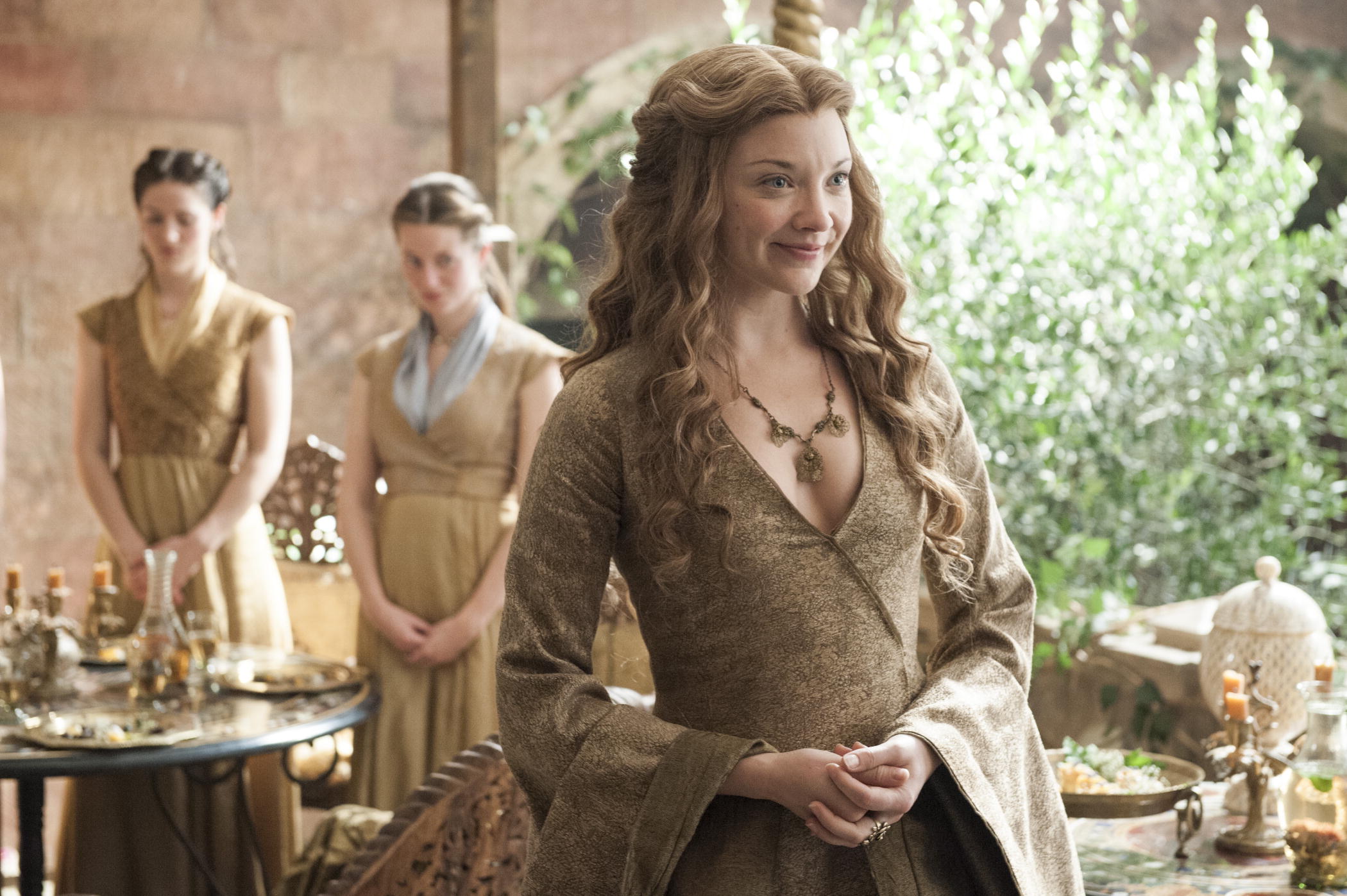
Spoilers for “The High Sparrow” follow:
Politics, it’s been said, is war conducted by other means. In Game of Thrones, so is sex, so is marriage, so is religion: all of them are instruments of politics and therefore weapons of war. The war is over in Westeros–or at least in King’s Landing, still far out of reach of Stannis’ army in the far north. And that means that for the victorious Lannisters and Tyrells in the capital, the real war can now begin.
In “High Sparrow,” Margaery fires the first shot, so to speak, in wedding and bedding her betrothed Tommen, who responds as if she’d just gifted him a flying unicorn. And almost immediately, the undermining begins: Cersei, Margaery coos, is such a devoted mother, which of course means she’ll always see him as “her little boy.” This immediately sets Tommen on edge, so happy is he to be exercising his manhood, and he’s soon suggesting that his mother might be happier at Casterly Rock, really you would, you can come and visit us anytime, don’t feel you have to visit too often.
It’s a daring move, but a transparent one that inevitably inspires a visit from Cersei to her daughter-in-law for a heart-to-heart befitting the finest of Bravo’s reality shows, which I can roughly translate:
MARGAERY: Good morning, Mother! Nearly noon and not drunk yet? Must be a special occasion!
CERSEI: No need to offer me anything. I’ve already eaten three arrogant little snots like you for breakfast.
MARGAERY: What a coincidence–I had your son thrice this morning! He hardly remembers who you are! Anyway, delightful to see you, be sure not to break a hip walking to the grave.
CERSEI: Prostitution whore! [Overturns table.]
Chess metaphors are cheap, but until someone breaks out the cyvasse board on Game of Thrones, they’re what we have. There are two queens, and a king who’s a pawn. So Cersei goes off in search of a bishop–or, in this case, a Sparrow.
There’s a religious fundamentalist movement afoot in Westeros, as is unsurprising in a land whose everyday commoners have been ruined by war. (In season 3, we saw many images of and references to the land that’s been despoiled by fighting, even if we spend most of our time among the nobles whom the wars are fought for.) The High Sparrow (Jonathan Pryce) has appeared in the capital, where he’s working with the poor and where his followers attac the current High Septon in mid-debauch at Littlefinger’s old brothel. (With Tyrion’s abduction at the end of the episode, that’s two men in the wrong whorehouse at the wrong time here.)
See The Real-Life People Who Inspired Game of Thrones Characters
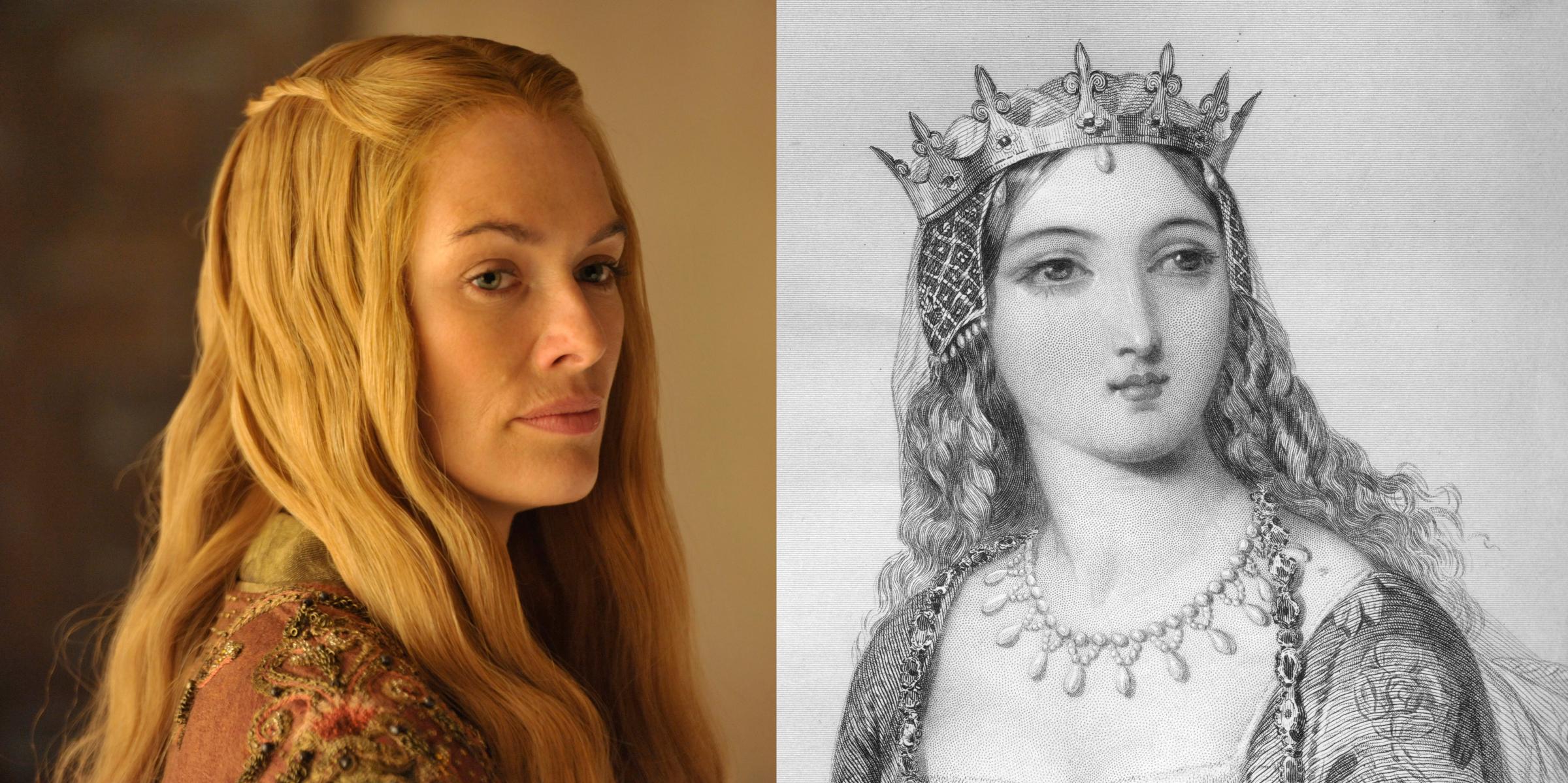
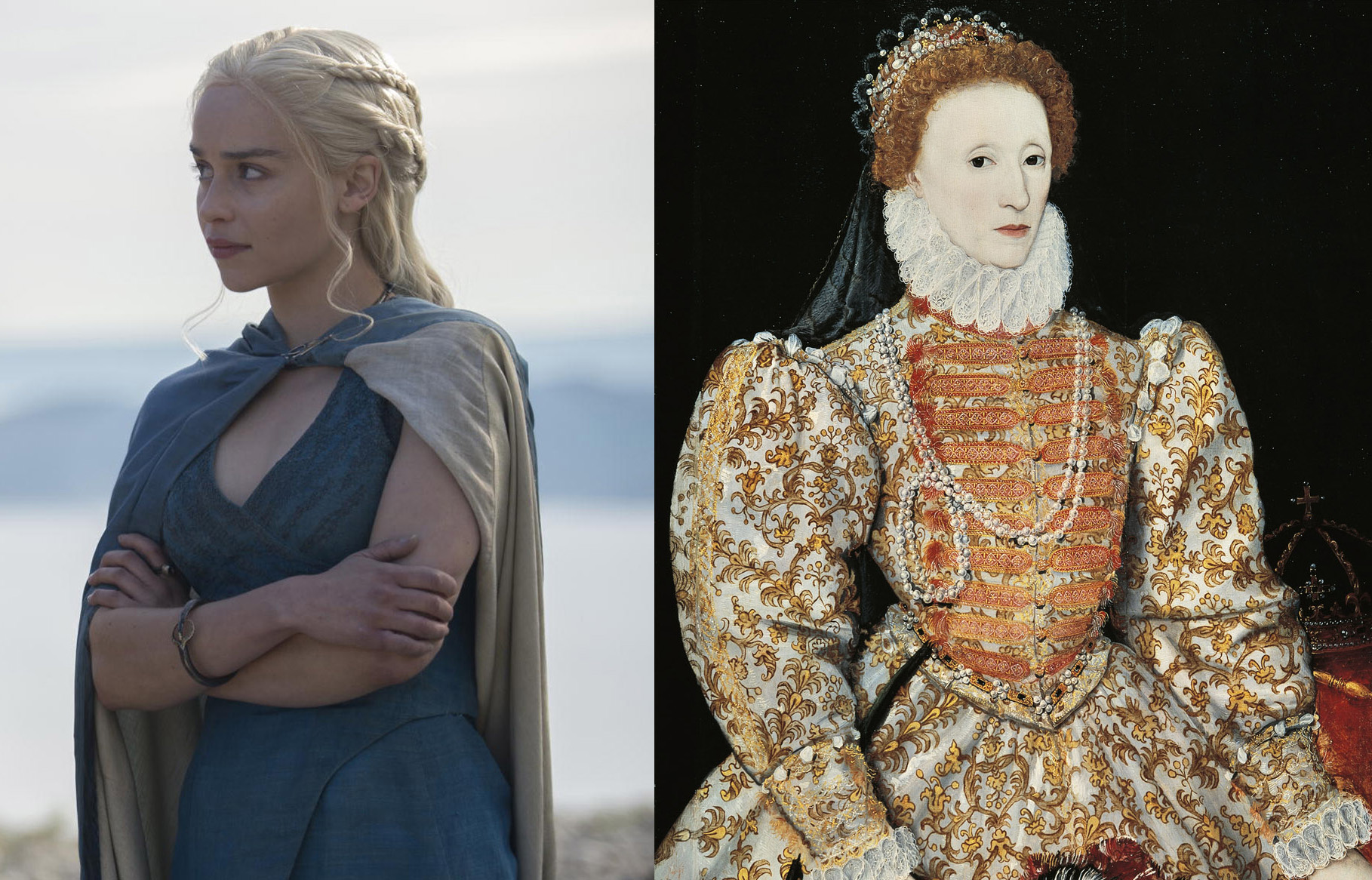
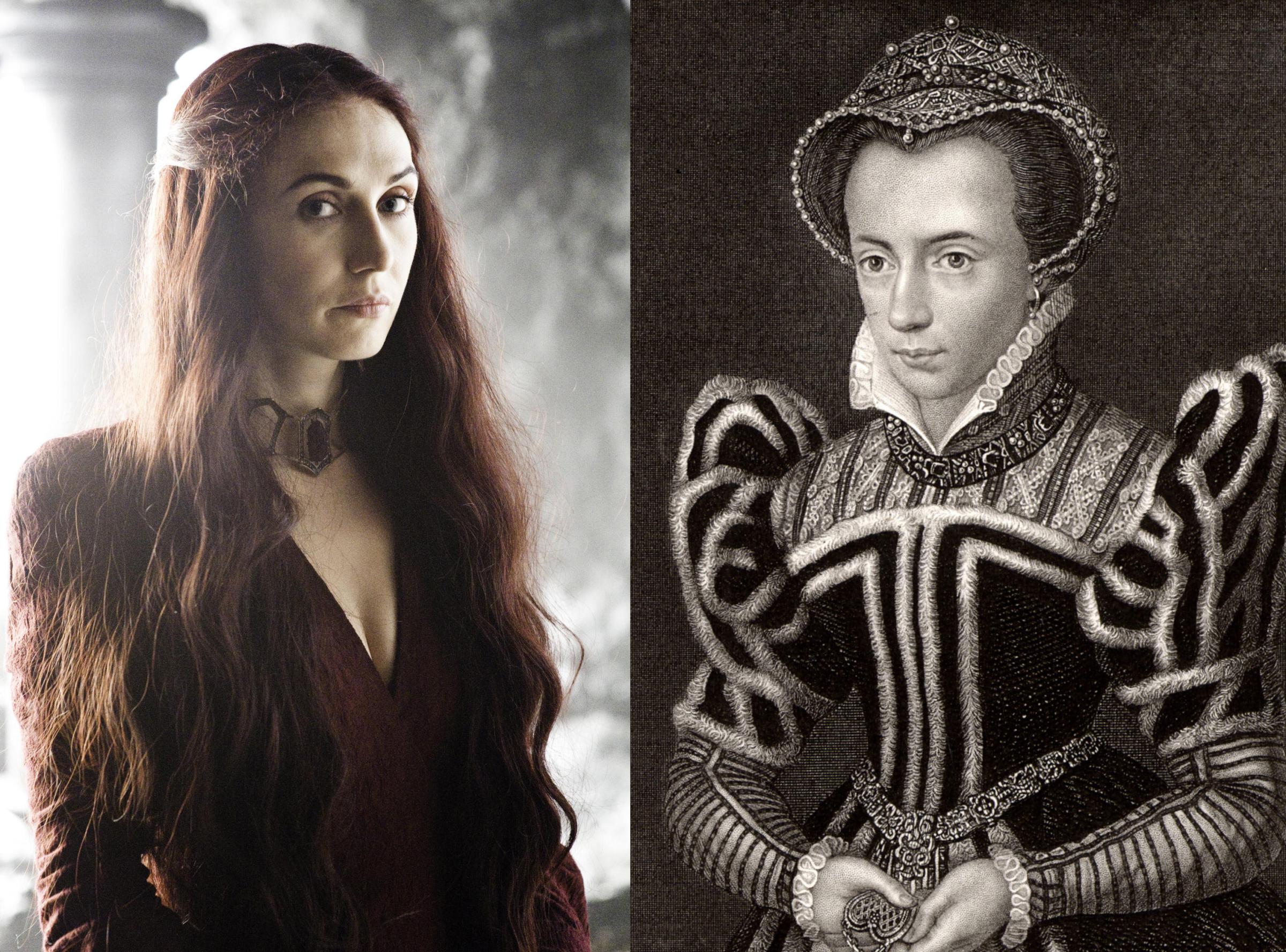
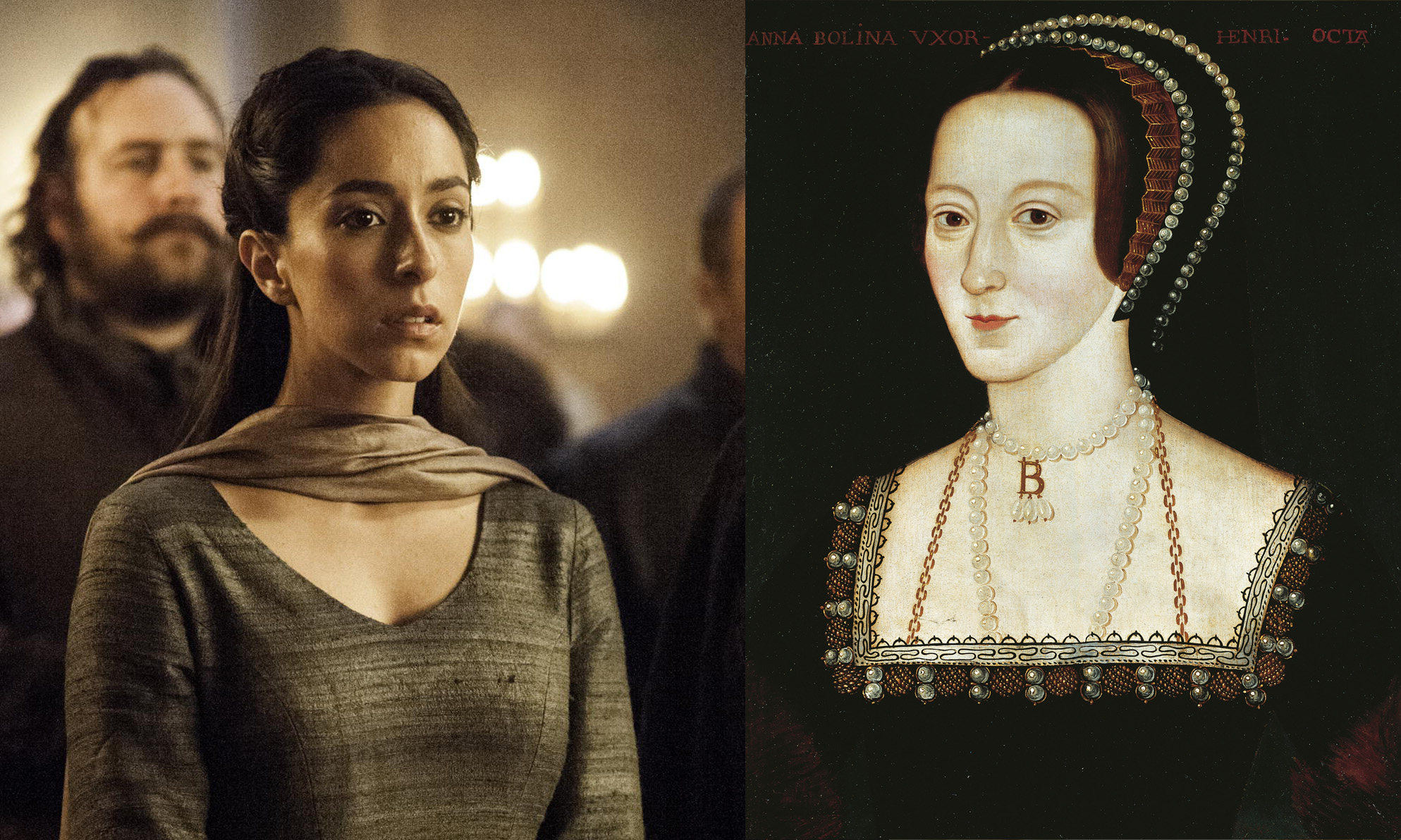
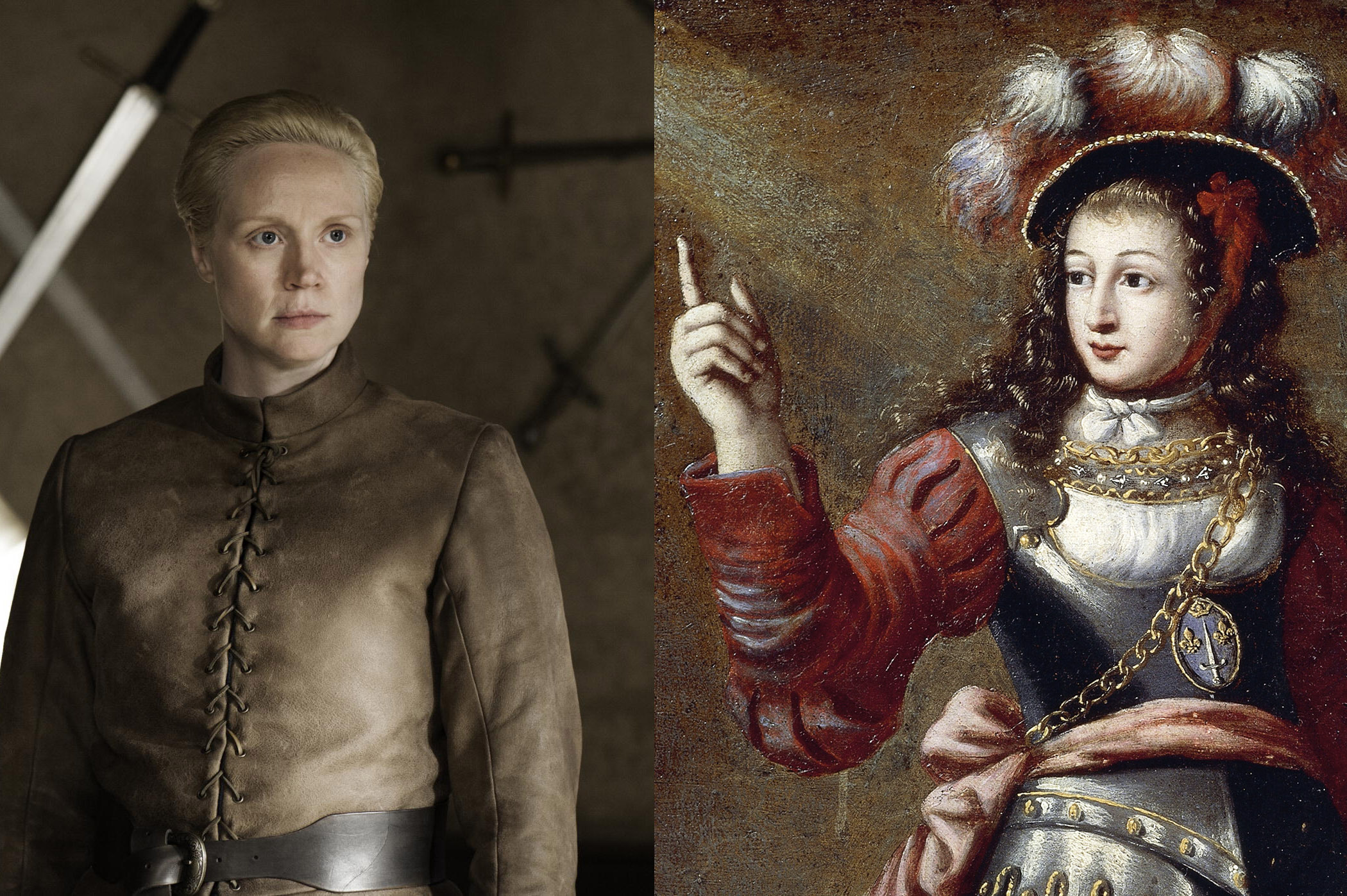
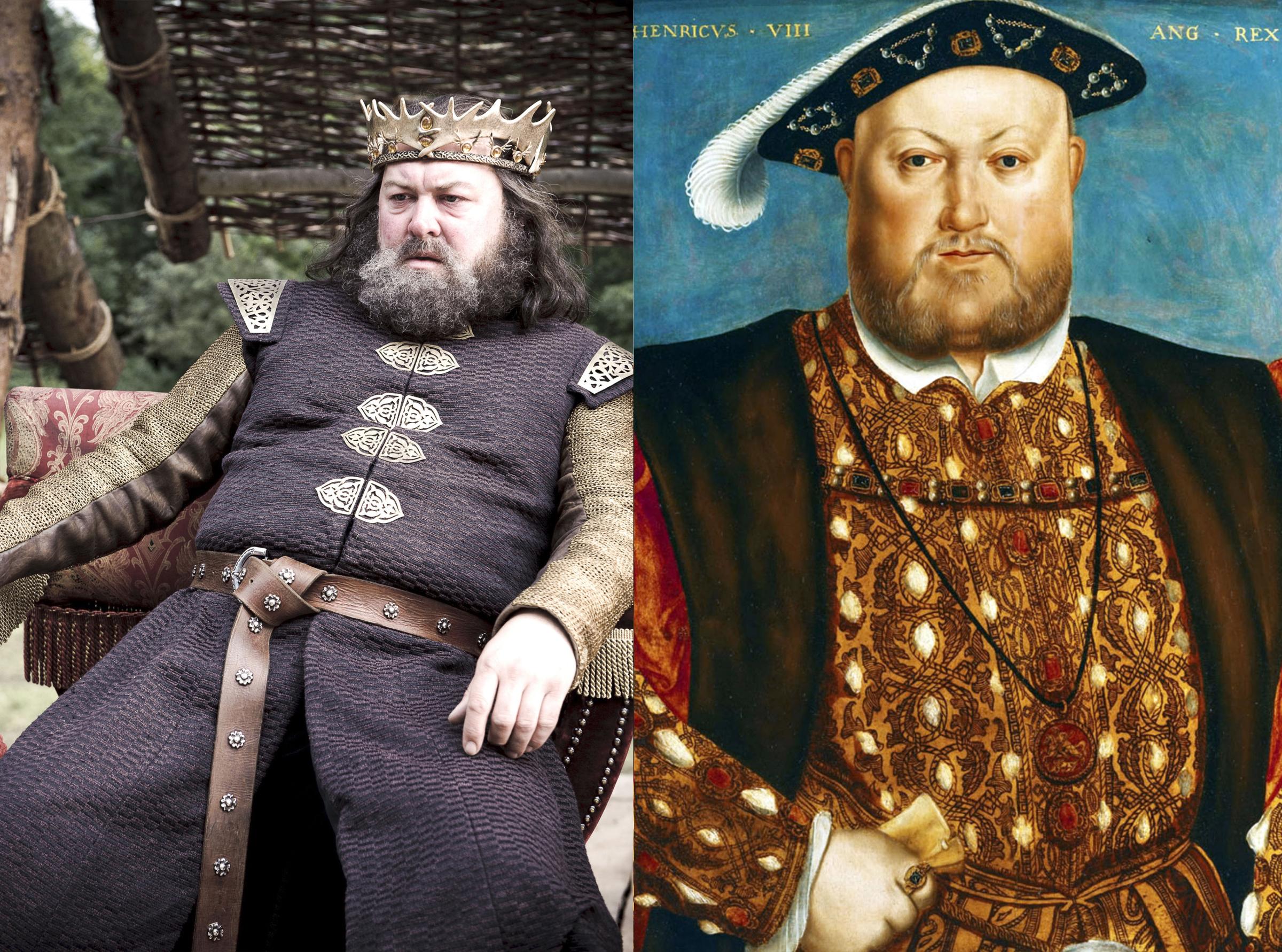
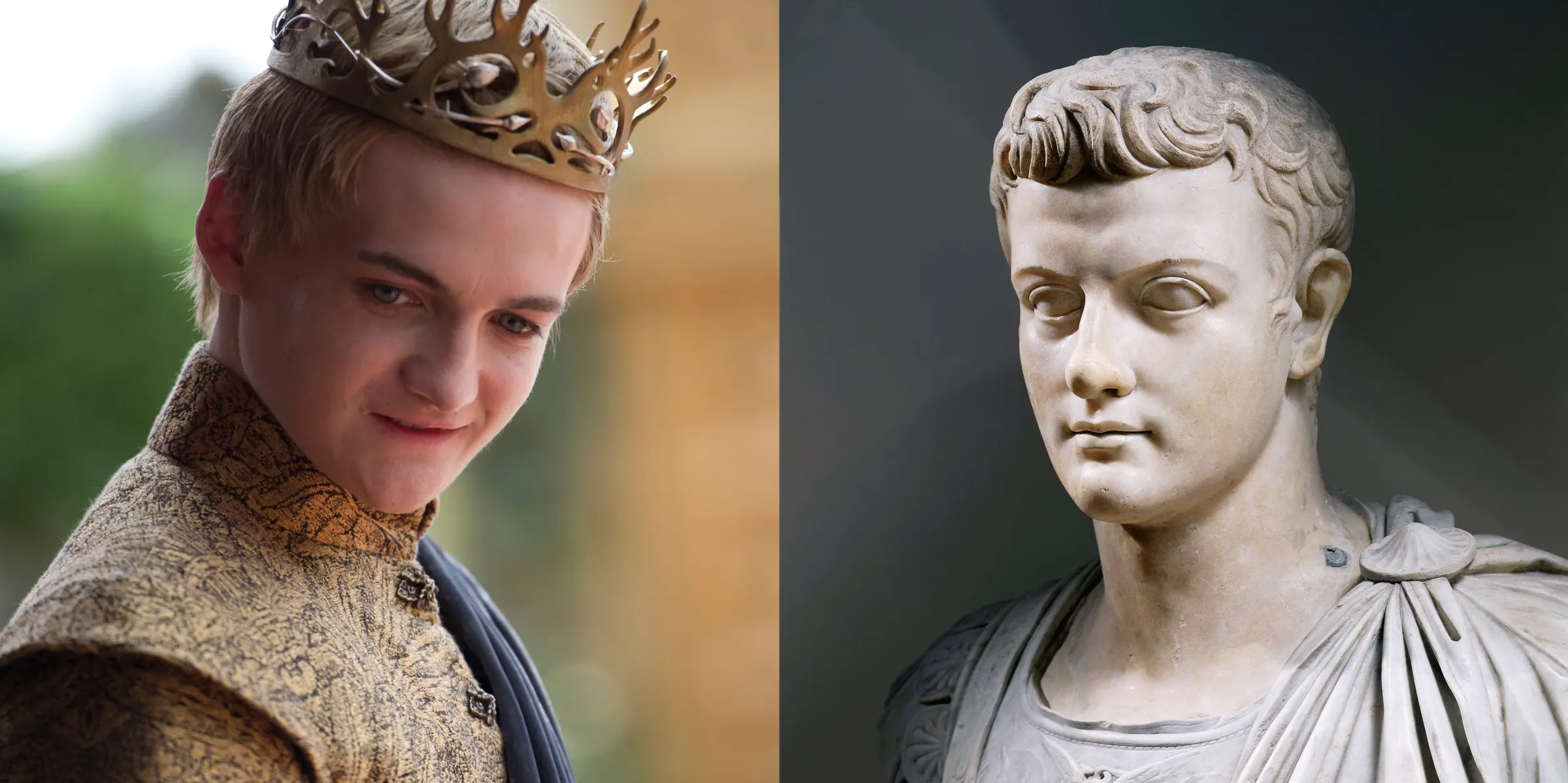
This article contains spoilers. Click here to reveal them.
You would not think he’s the sort of person that Cersei–not big on altruism and the little people–would try to cultivate an alliance with. But she doesn’t have her son, she’s losing power in the Small Council, and Cersei didn’t get where she is by not using what’s available to her. The High Septon, it seems, is part of the Old Guard network–hypocritical but powerful, devoted to protecting the status quo. (Pycelle, no stranger to brothels, believes “a man’s private affairs should stay private.”) But now that the Old Guard powers would just as soon relegate her to dowager-queen irrelevancy, Cersei sees her hope in allying with the disruptors–upstarts like the High Sparrow, and Qyburn the brilliant-but-disgraced maester.
In the North, meanwhile, there’s a quite different effort to build power through marriage, and it’s a shocker: Littlefinger has it in mind to marry off Sansa to the sadistic Ramsay Bolton, whom we’ve just seen turn some recalcitrant lords into prosciutto. (And whose past hobbies include hunting women with arrows.) If this strikes you as an outrageous idea (my notes from this scene literally read “NOOOOO!”), you’re not alone; Sansa says she’d rather die. But she happens to be in the company of the one person in Westeros who knows that living powerfully–if not well–is the best revenge, and probably the only one. “There’s no justice in the world,” he tells her. “Not unless we make it.”
It’s a powerful scene. Among other things, it shows how Sophie Turner has convincingly brought Sansa from the dreamy teen she was at the series’ beginning to find inner resources of strength that surprise even her.
As for Littlefinger’s motivations, I’m perplexed and intrigued. I genuinely believe that he has Sansa’s welfare in mind; what seemed like a creeper’s interest in the daughter of the love he couldn’t have has turned into an affectionate alliance. (Of course, he may just have me fooled.) But I also have a hard time that a man who seems to have the scouting report on his every enemy and ally does not have some idea of what a (literal and figurative) bastard Ramsay is, and what kind of danger he’s bringing Sansa into.
In the end, it may just be that Littlefinger is not so different from Cersei. Each of them knows that you don’t always get to choose the perfect ally. Sometimes you need to attach yourself to unsavory folks, be it a tyrant who likes to make charcuterie of his enemies, or a creepy maester like Cersei’s Qyburn, down in his lab, assembling whatever creature is twitching under that bedsheet[!].
That Frankensteinian image may be the best metaphor for the acquisition of power in “High Sparrow.” Sometimes, you just have to use whatever human parts you have at hand.
Now for the hail of arrows:
* As always, I’m not aiming to cover every storyline and scene in the episode; anything else you want to discuss, that’s what the comments are for. That said–though there’s lot of plot to cram in at this point, it’s good to see the episode spending time on conversations that serve a purpose other than sheerly advancing story: in particular, Brienne’s heart-to-heart with Podrick, remembering the humiliation that Renly saved her from. The scene helps establish her motivation (her loyalty to Renly is not simply infatuation–“He liked men, I’m not an idiot”) and showcases the Gwendolyn Christie contributes talents to this show besides looking spectacular in a high-speed horse chase.
* Several departures from the source books, which I’ll blur for anyone who wants to avoid discussing book-spoilers (click at the top of this article to reveal them):
First, of course: Sansa! On the one hand, I’m horrified. On the other hand, this makes a lot of narrative sense. First, because as we discused last week, we’d essentially run out of book for Littlefinger and Sansa to begin with. Second, because it’s both more economical–and a lot easier to emotionally invest in–than the book’s disguising of Jeyne Poole as “Arya Stark.” (Not because Jeyne’s story isn’t itself awful, but we hardly need more characters introduced given ten hours of airtime a season.)
Second, it’s looking like a different storyline with the High Sparrow and King’s Landing. Rather than have the High Septon smothered by Osney Kettleblack, he’s jailed. I also wonder if his being stripped in the streets and shamed by the Sparrows is a setup for Cersei’s eventual treatment (which, in the book, is portrayed like an expression of misogyny in the High Sparrow and/or the Faith of the Seven generally, since we don’t see men come in for that slut-shaming in the books). I’m especially curious what it means that Cersei’s cultivating the High Sparrow–though, as reports from the set suggest, it doesn’t turn out any more happily for her. (Though Pryce portrays a more kindly High Sparrow–at least for now–than the pinch-faced moralist I imagined in the books.)
Finally–and I’m sure there are other changes I’m skipping–it looks like Tyrion is coming to Dany by much different and faster means than his journey by barge and mercenary company. (We do, however, get snippets of things he witnessed in A Dance With Dragons, like word of Dany’s liberation of Meereen spreading throughout Essos.) Though I doubt Jorah will be a witty a conversational companion as Varys.
* Farewell, Janos Slynt! This isn’t the first time we’ve seen someone lose his head on a frosty chopping block–that was, after all, how we met Ned Stark–but note the look Jon exchanged with Stannis, who seems grimly proud that Jon refuses mercy and enforces the law. If Jon refused to be made a Stark by law, he seems to have a different sort of father figure to please now.
* Farewell (for now), Needle! Yes, I cried over a sword. Don’t you judge me.
* “I heard it was best to keep your enemies close.” “Whoever said that didn’t have many enemies.” Who says Stannis Baratheon isn’t funny?
Read next: Here’s How Fans Reacted to the Sansa Plot on Game of Thrones
See Photos from Game of Thrones Season 5
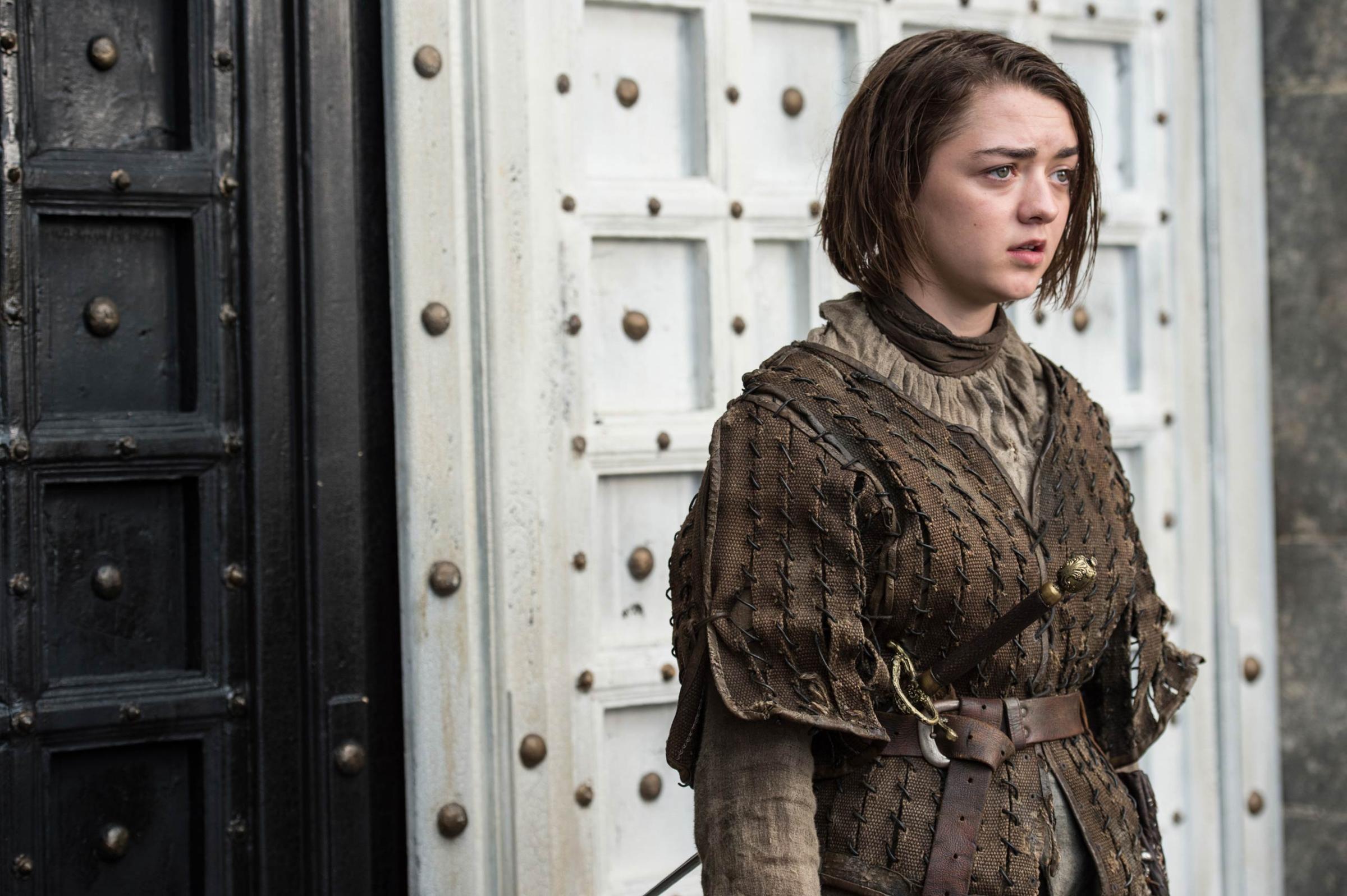
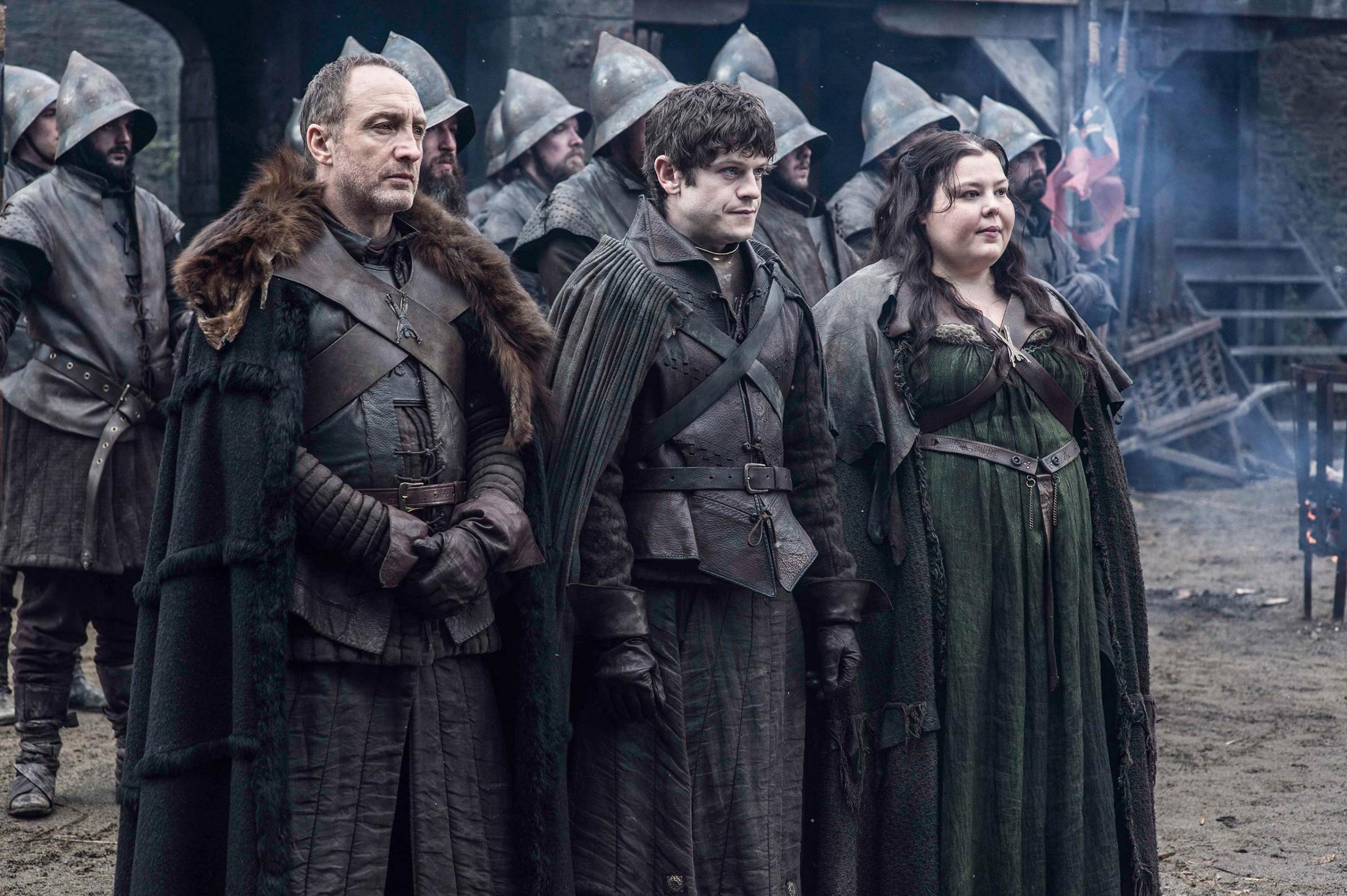
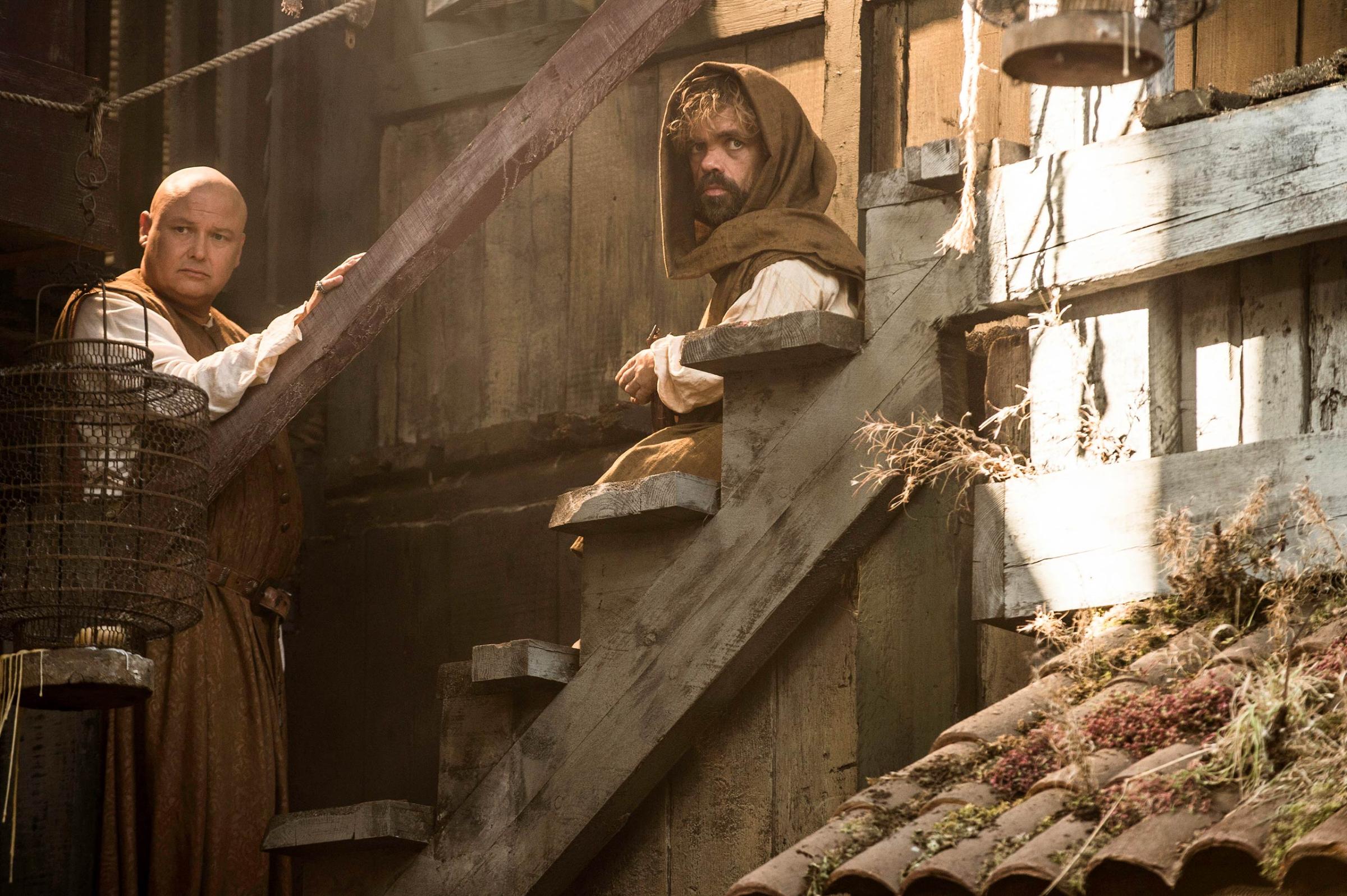

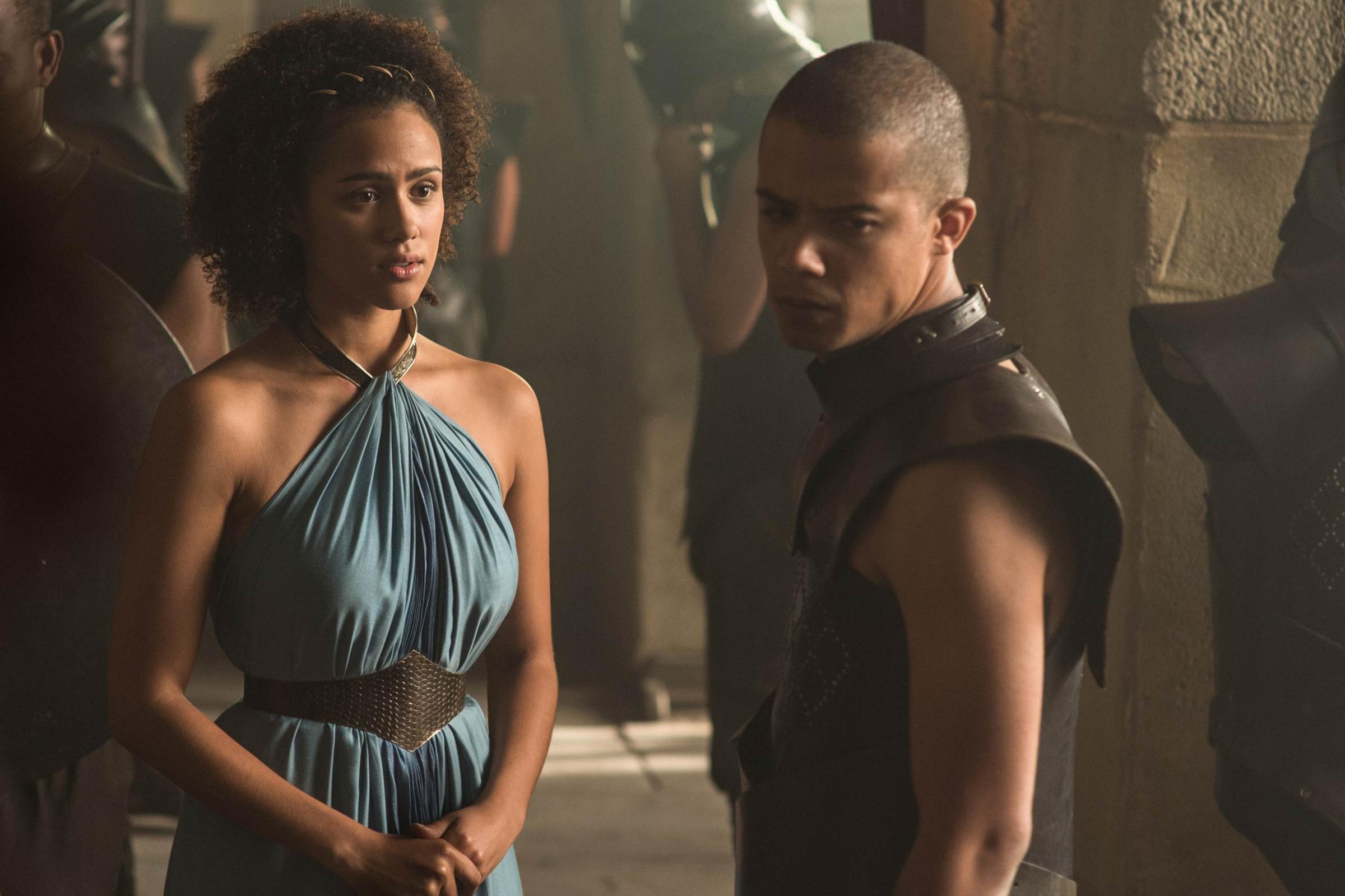
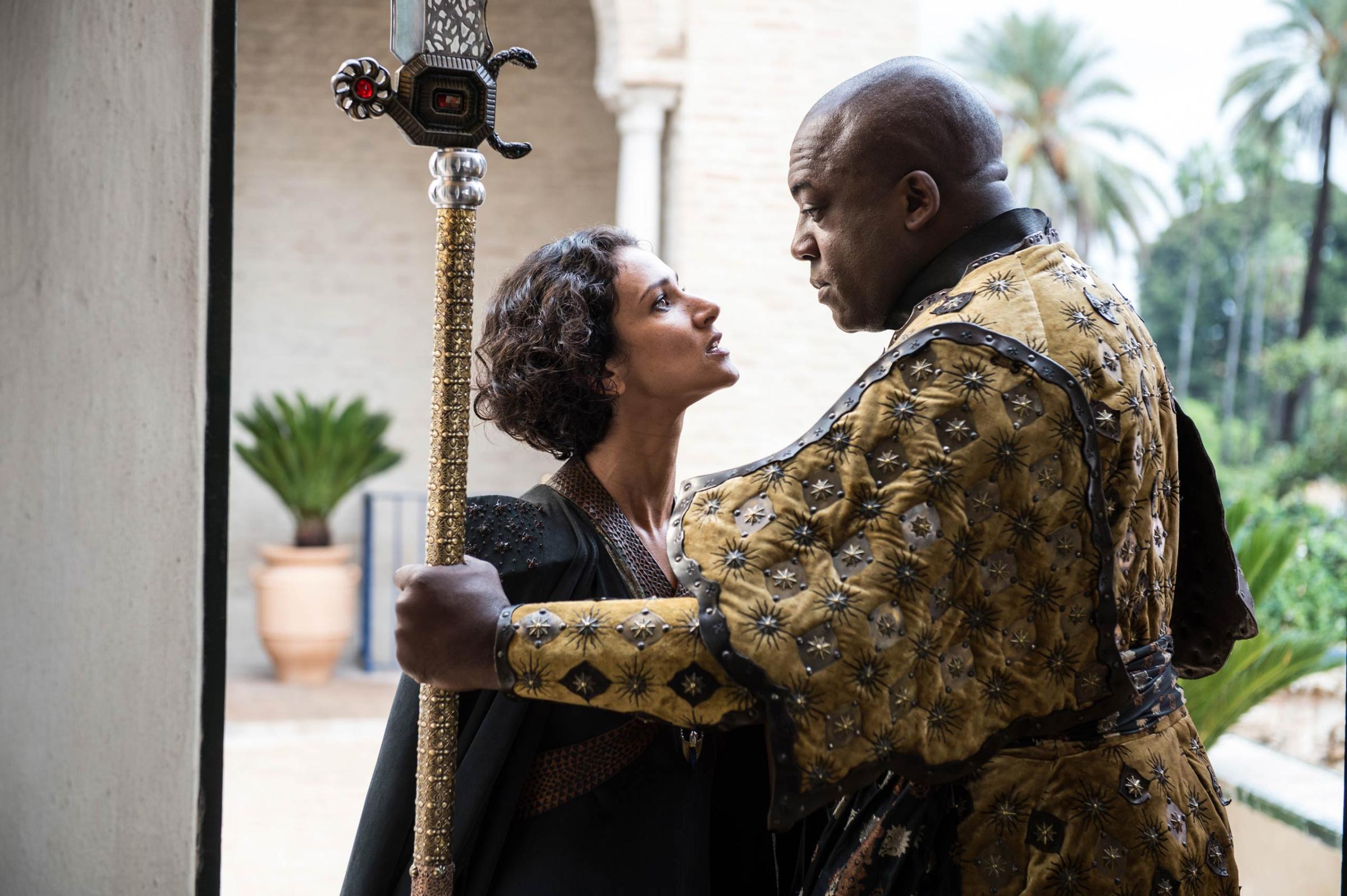
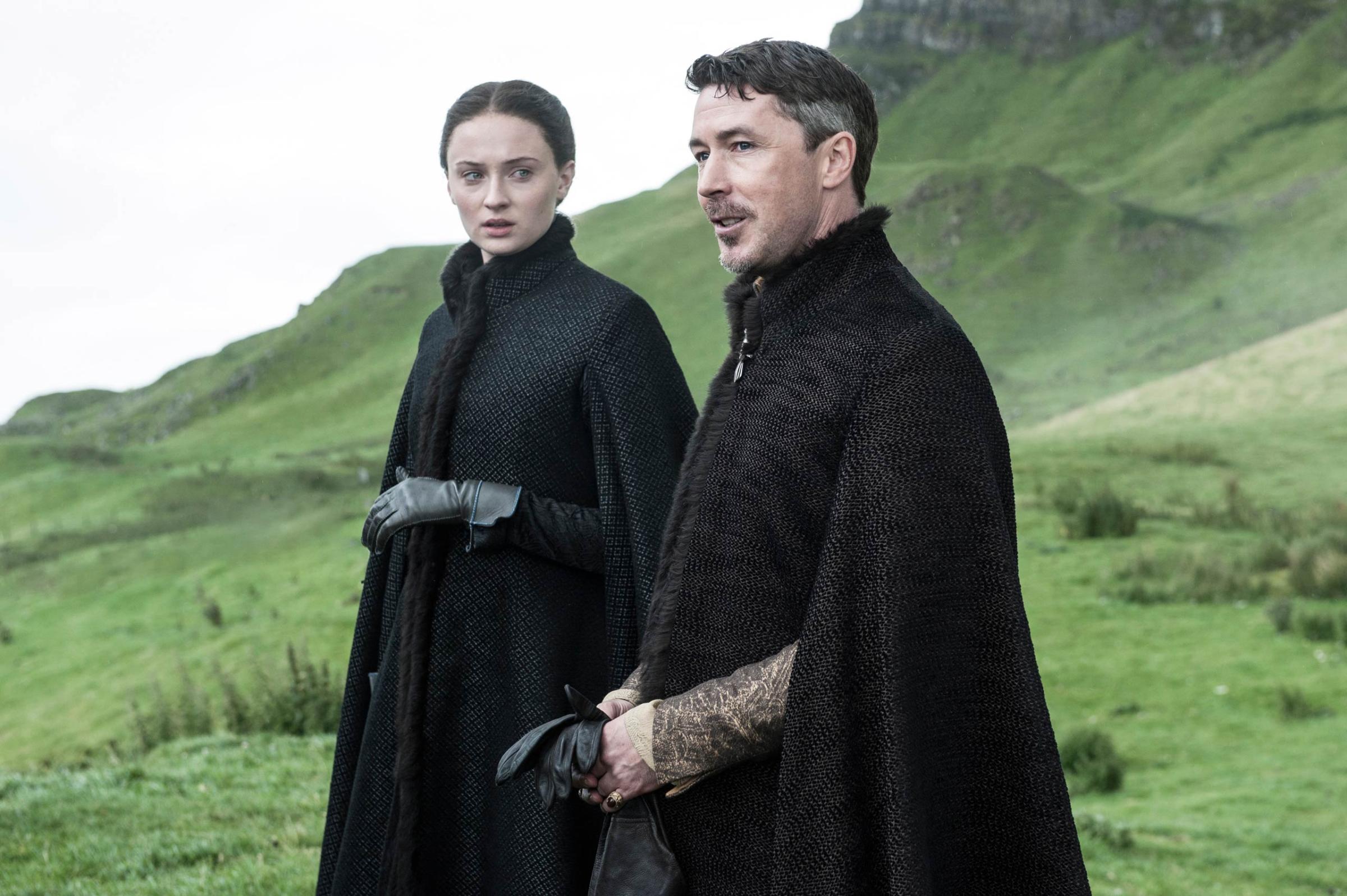
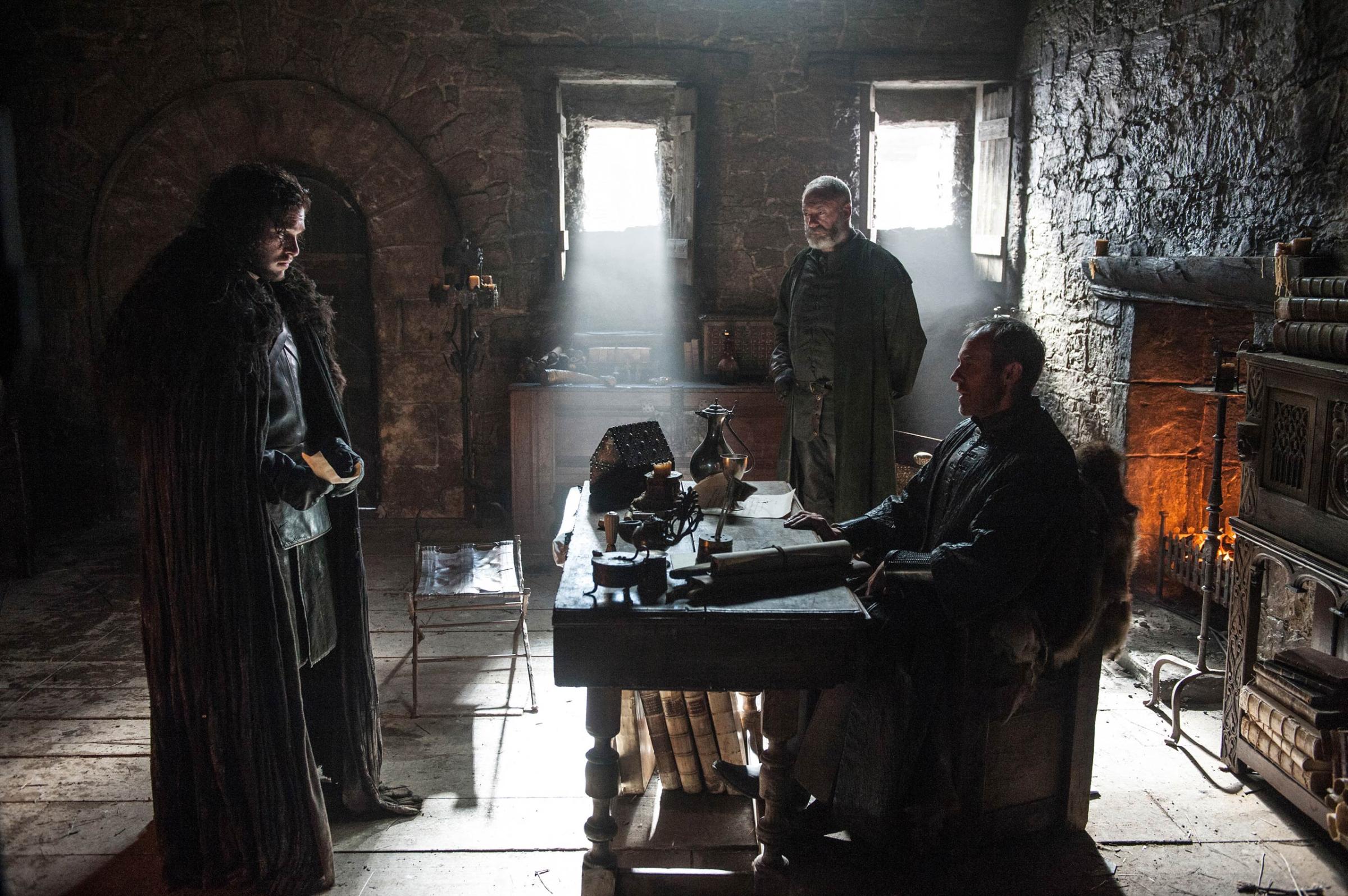

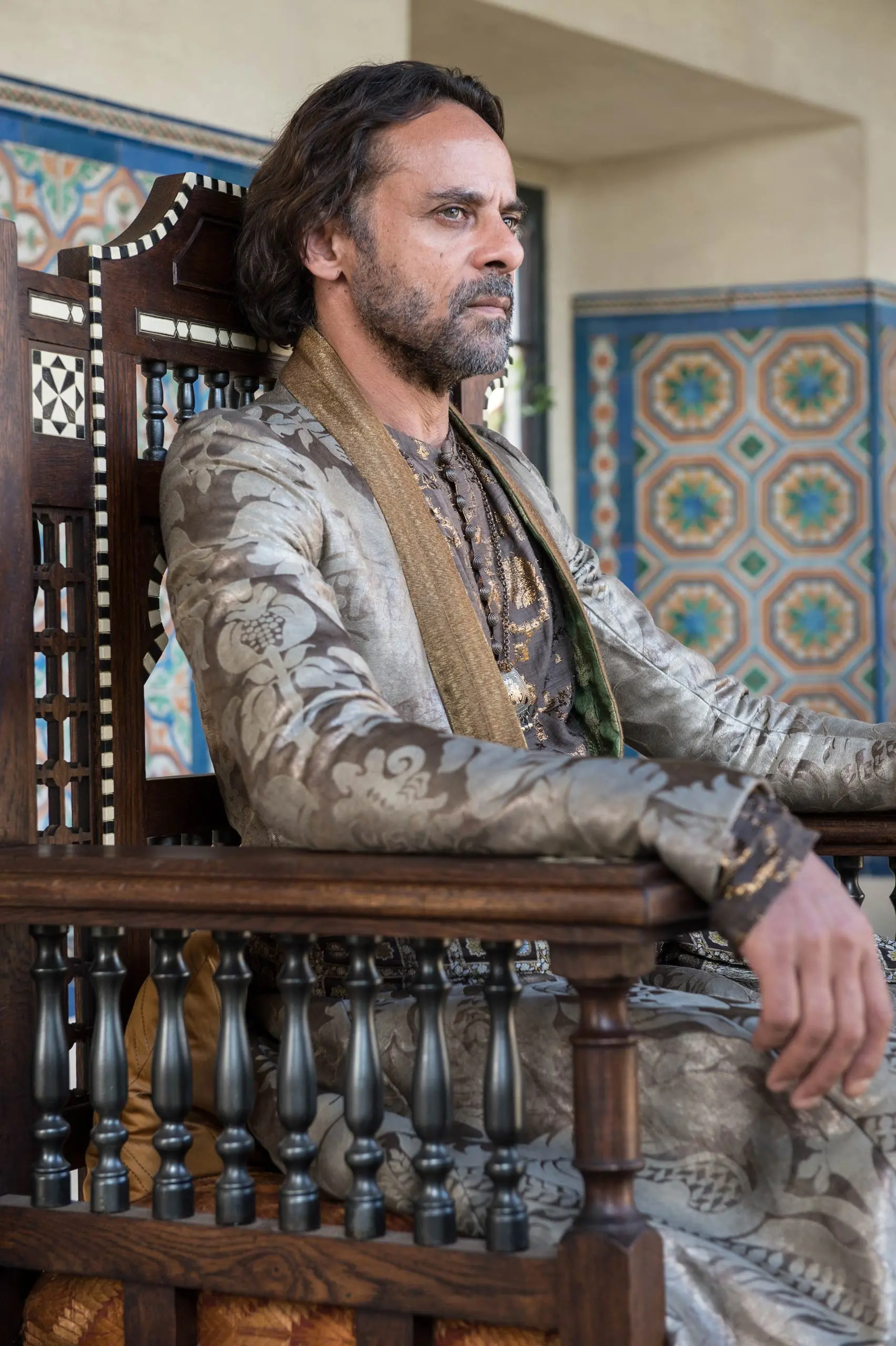
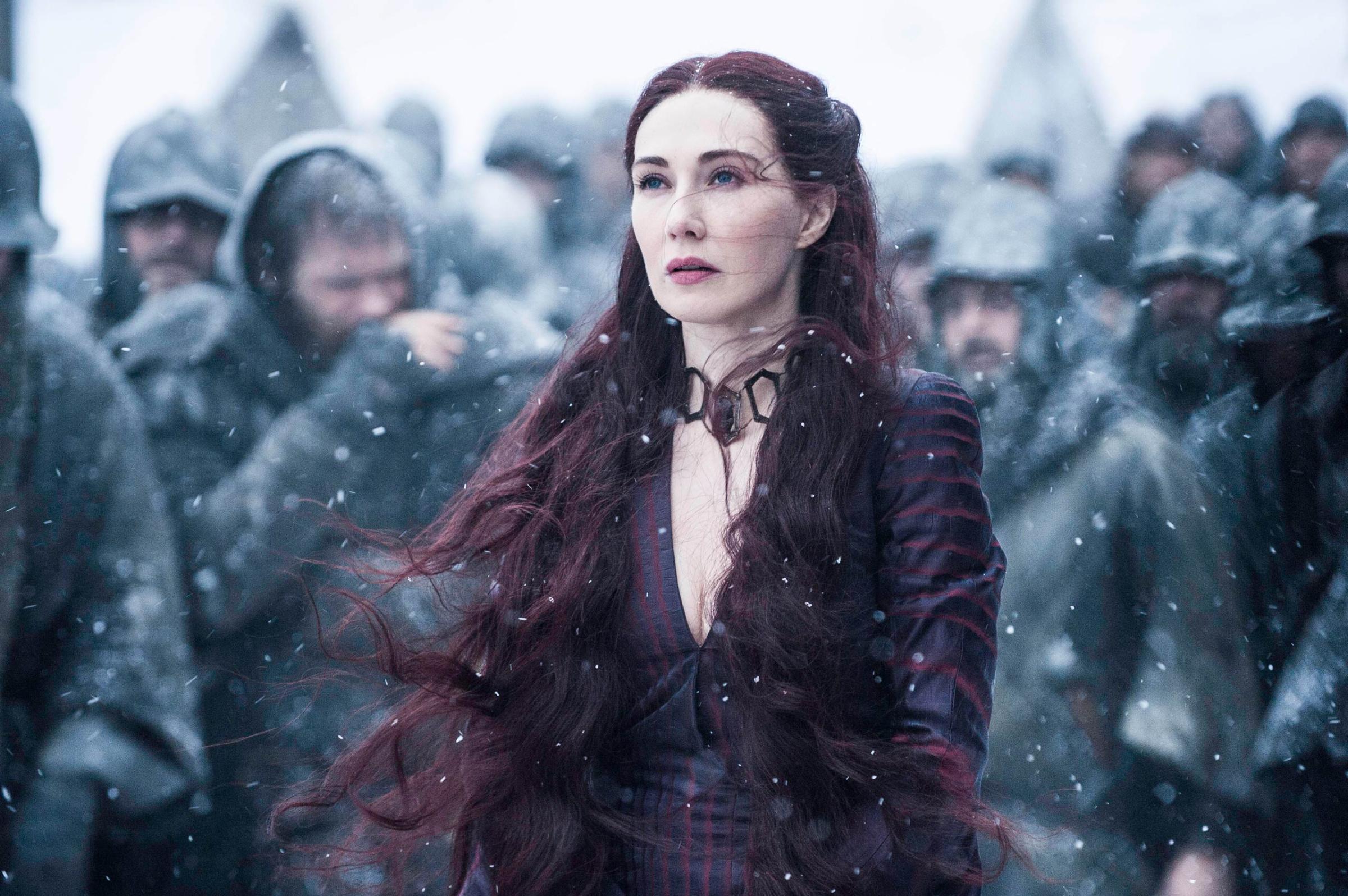
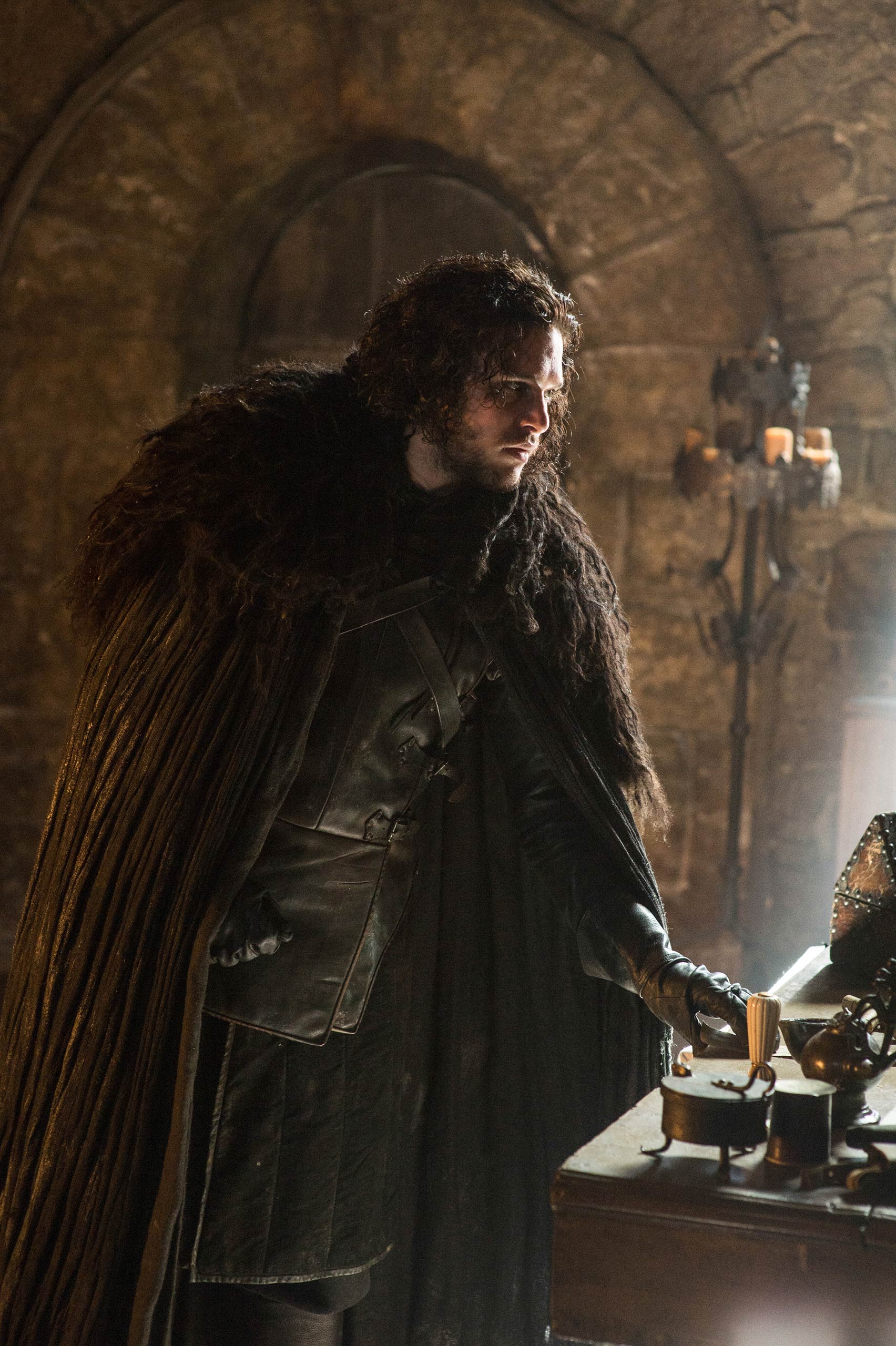
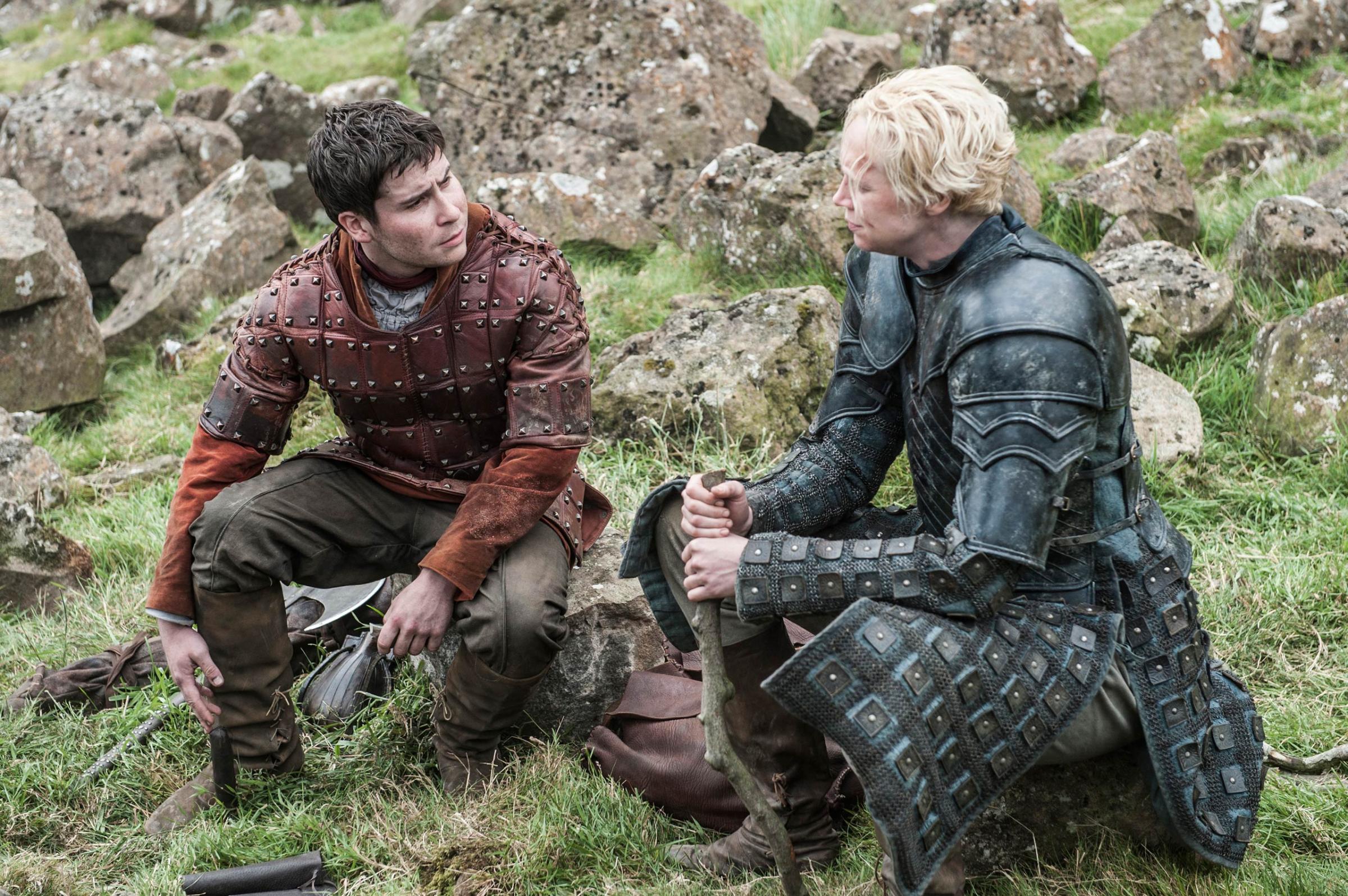
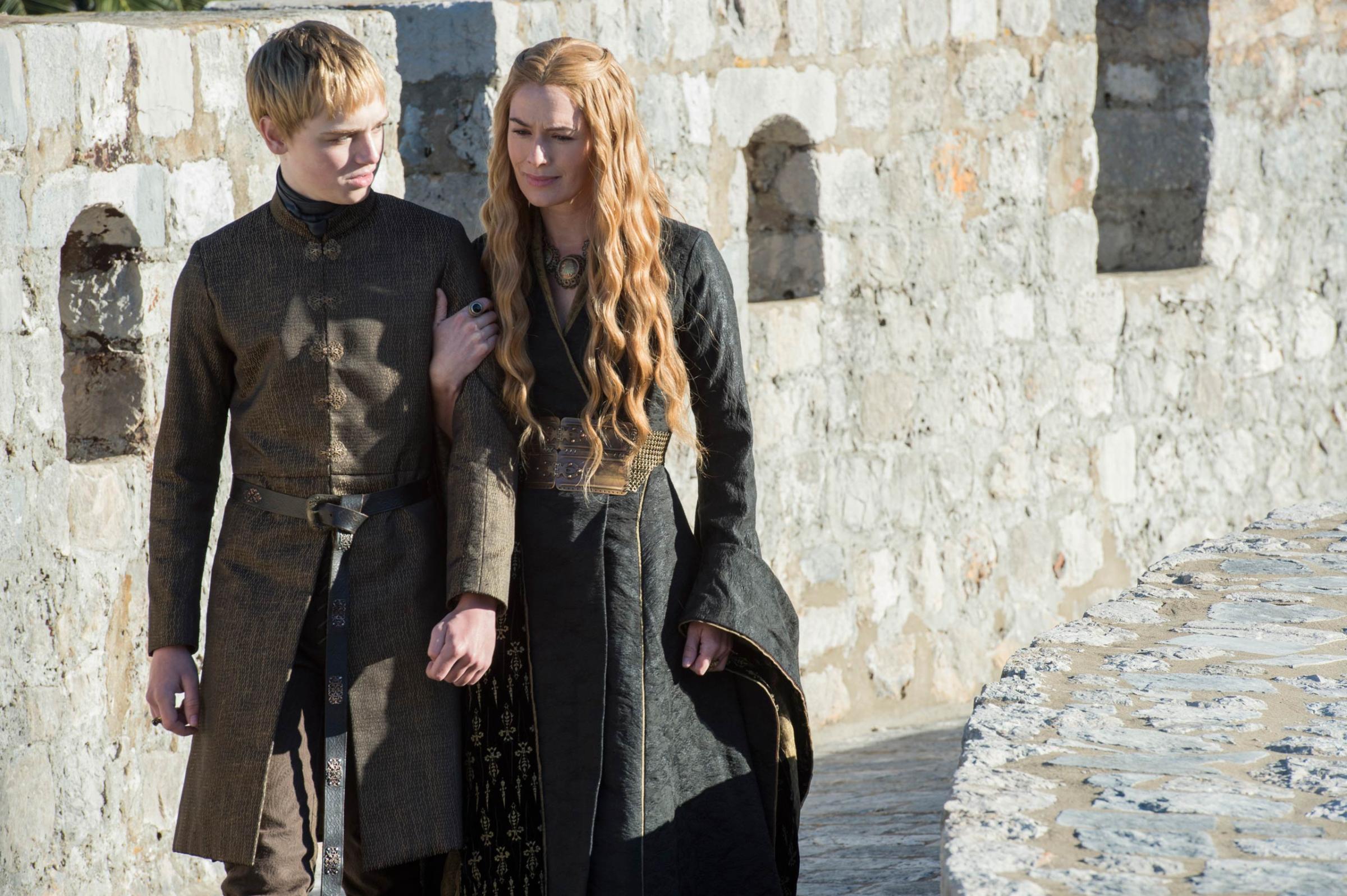
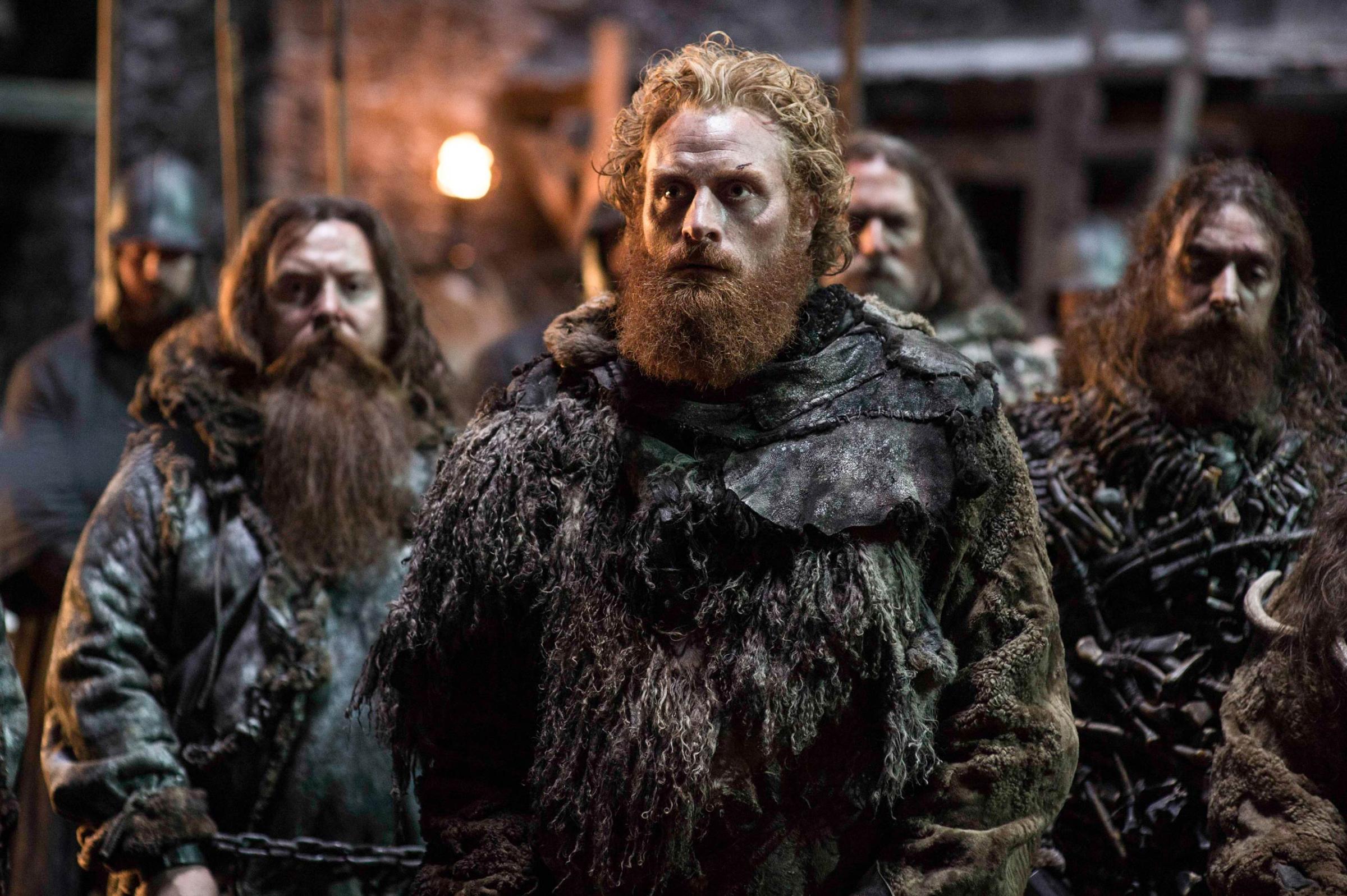
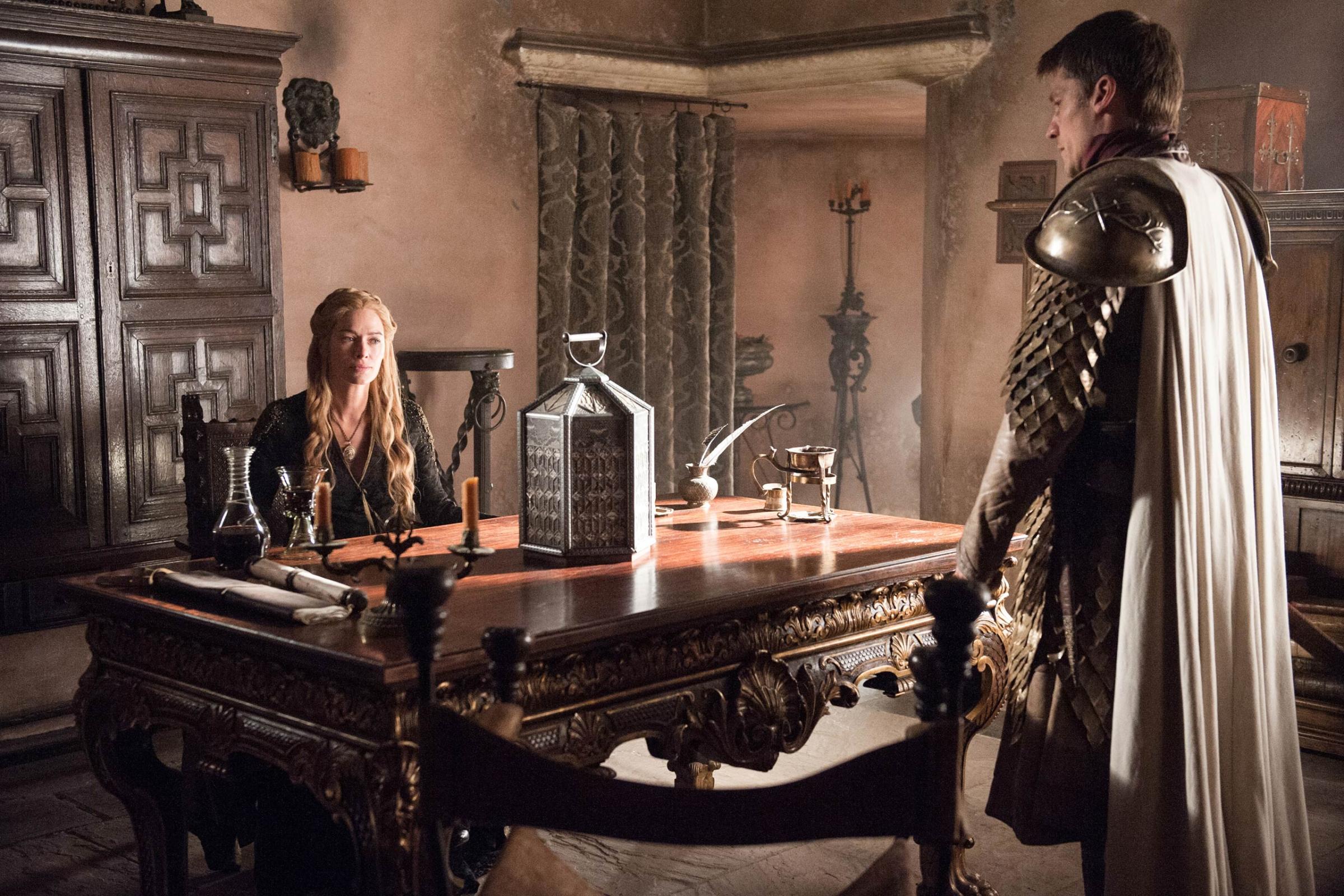

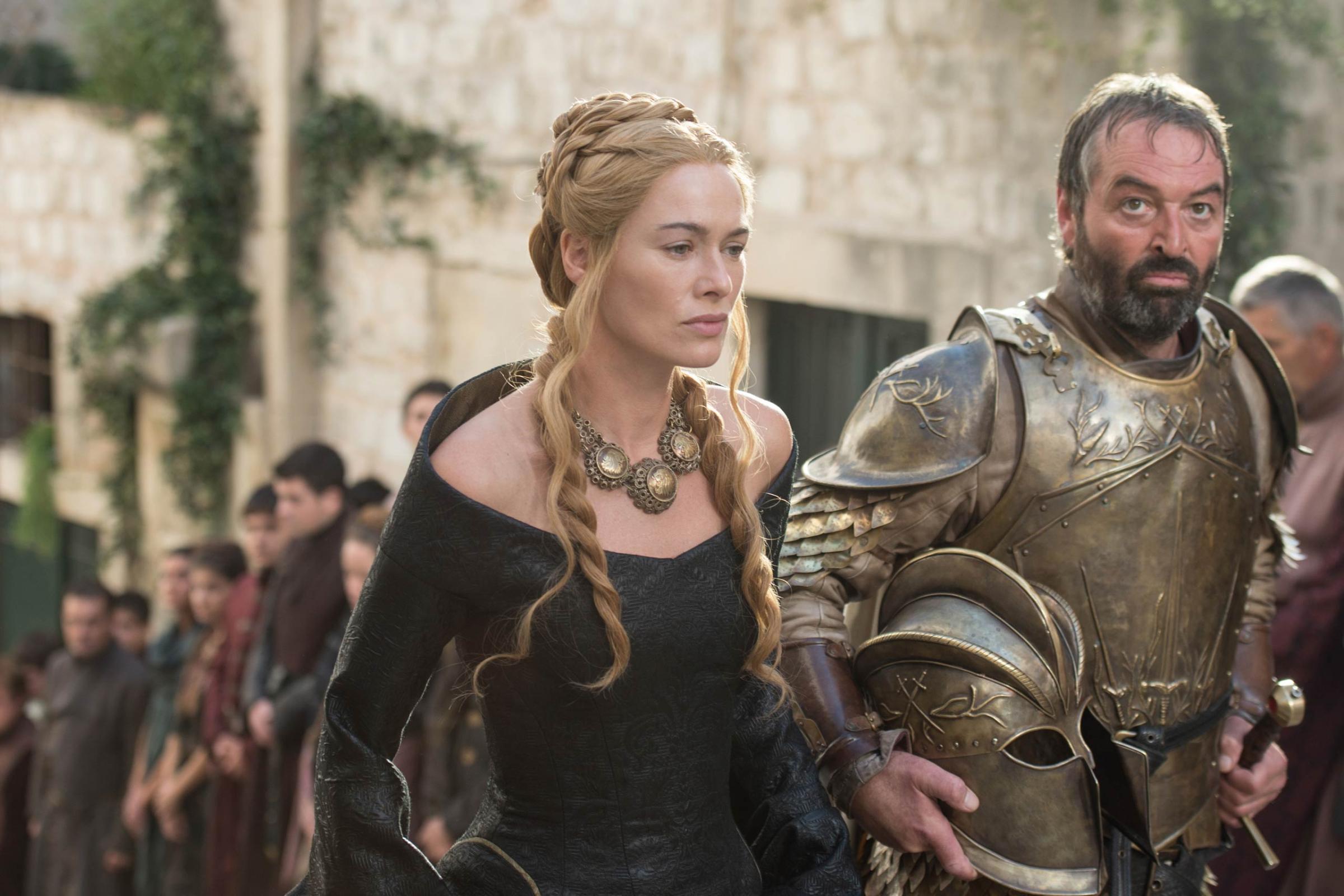
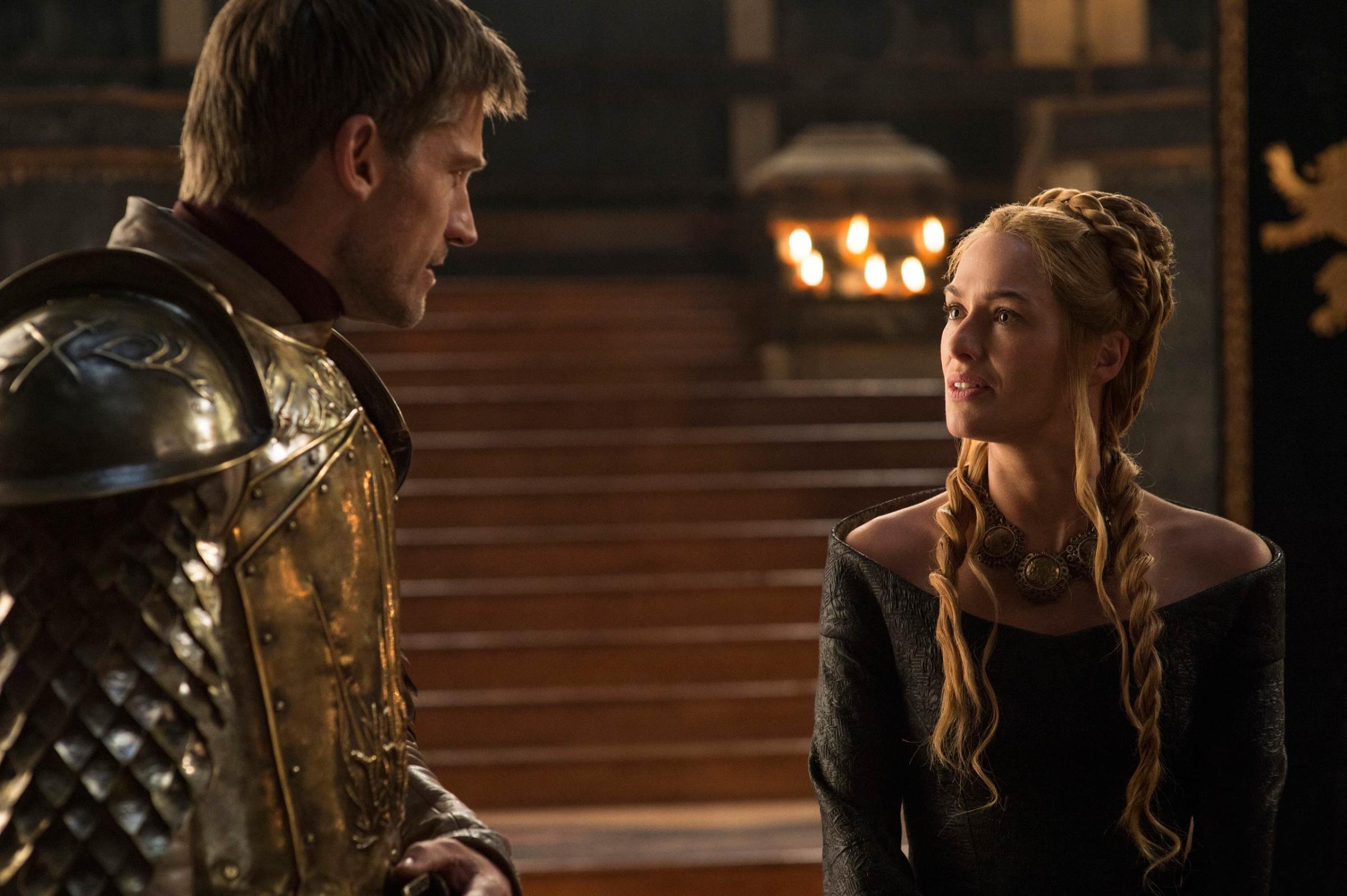
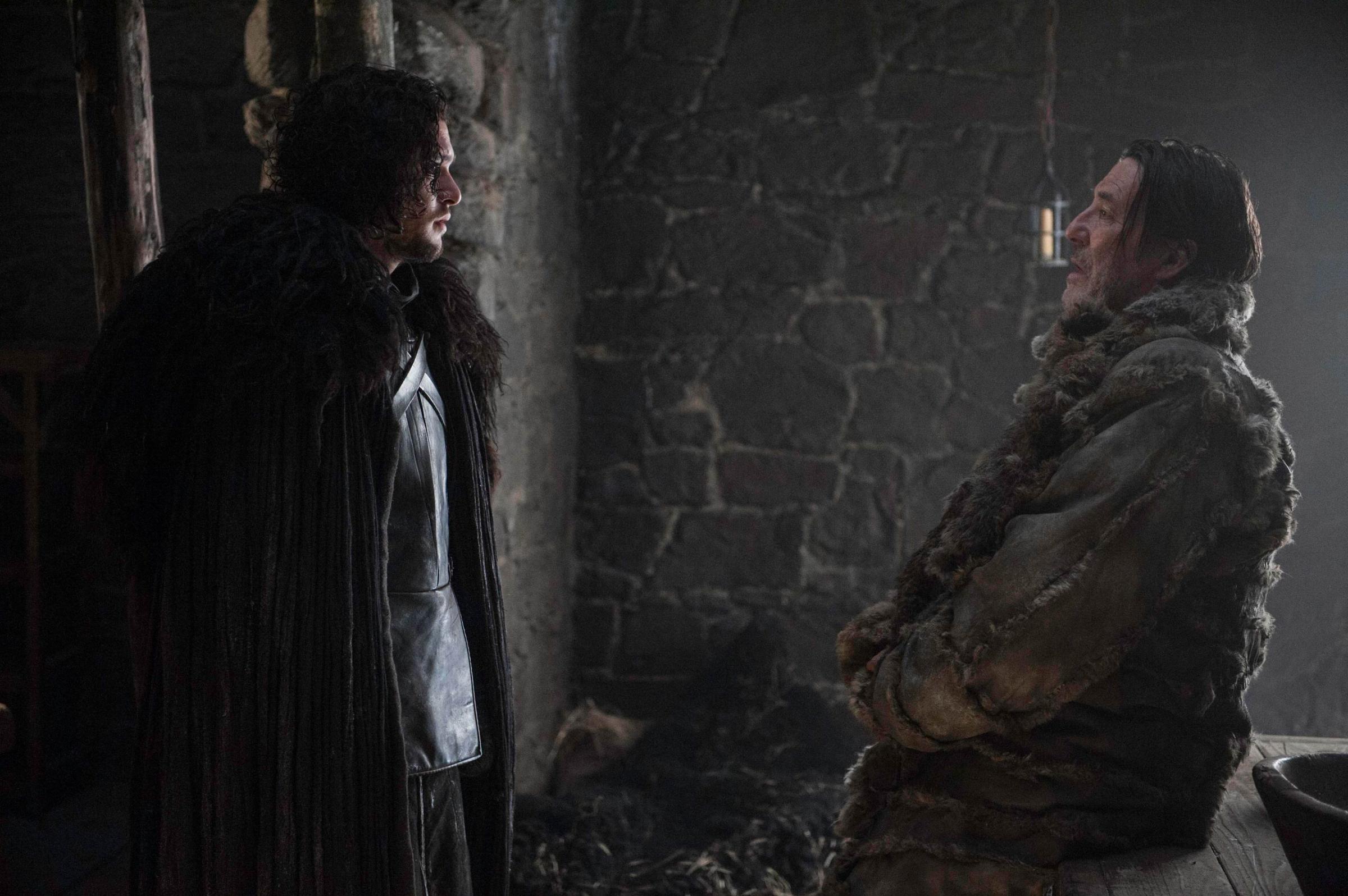
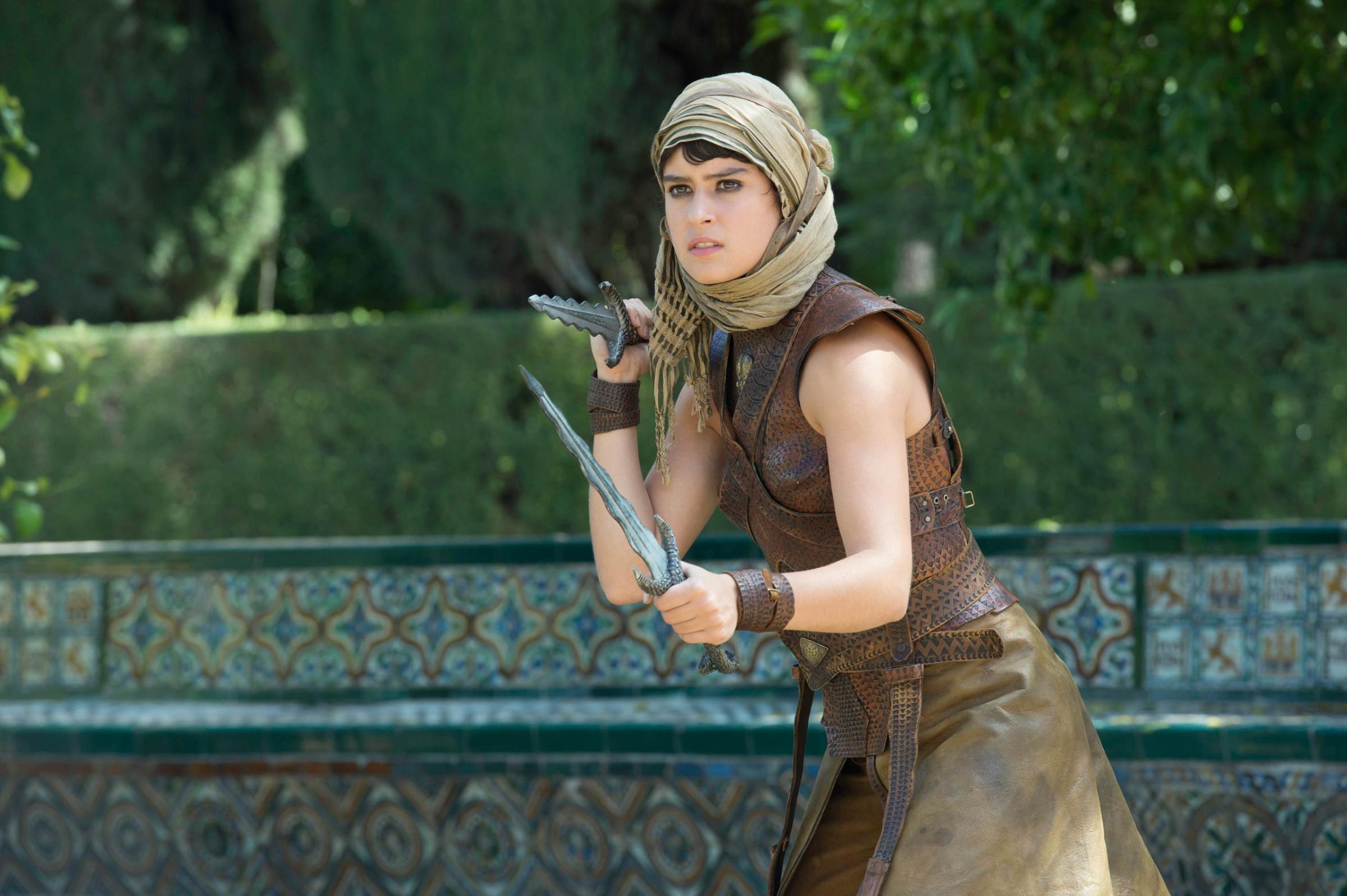
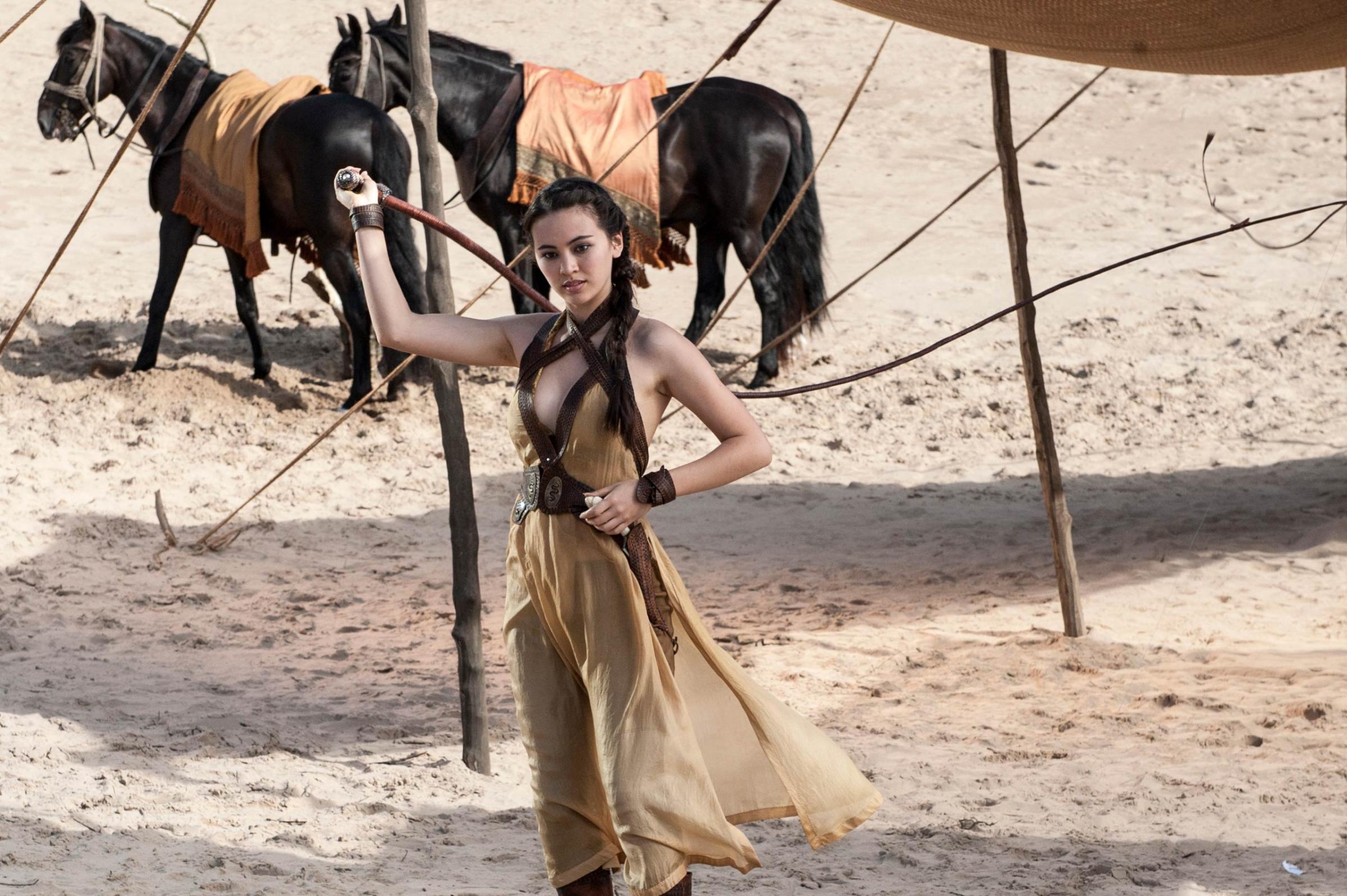
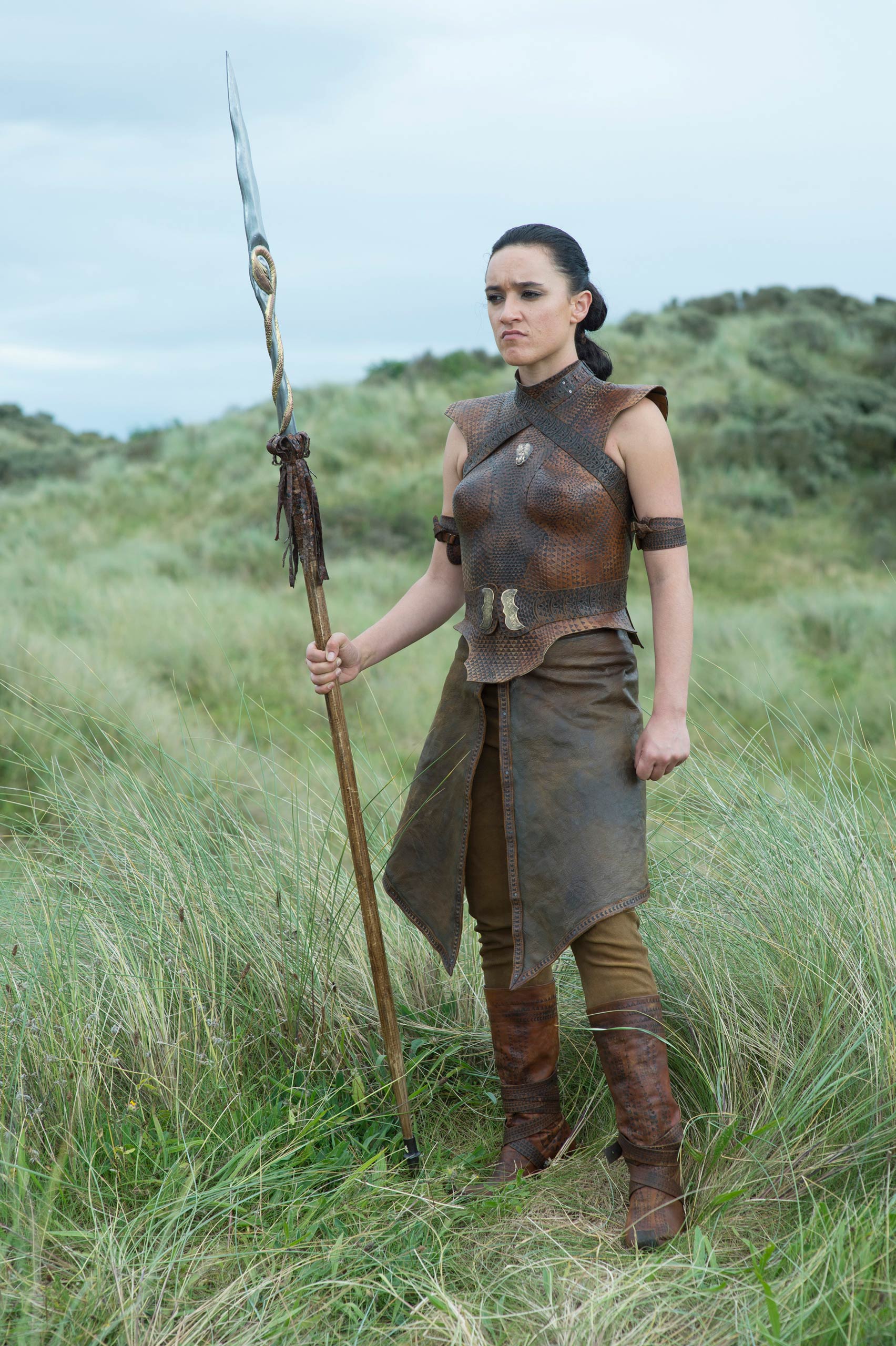
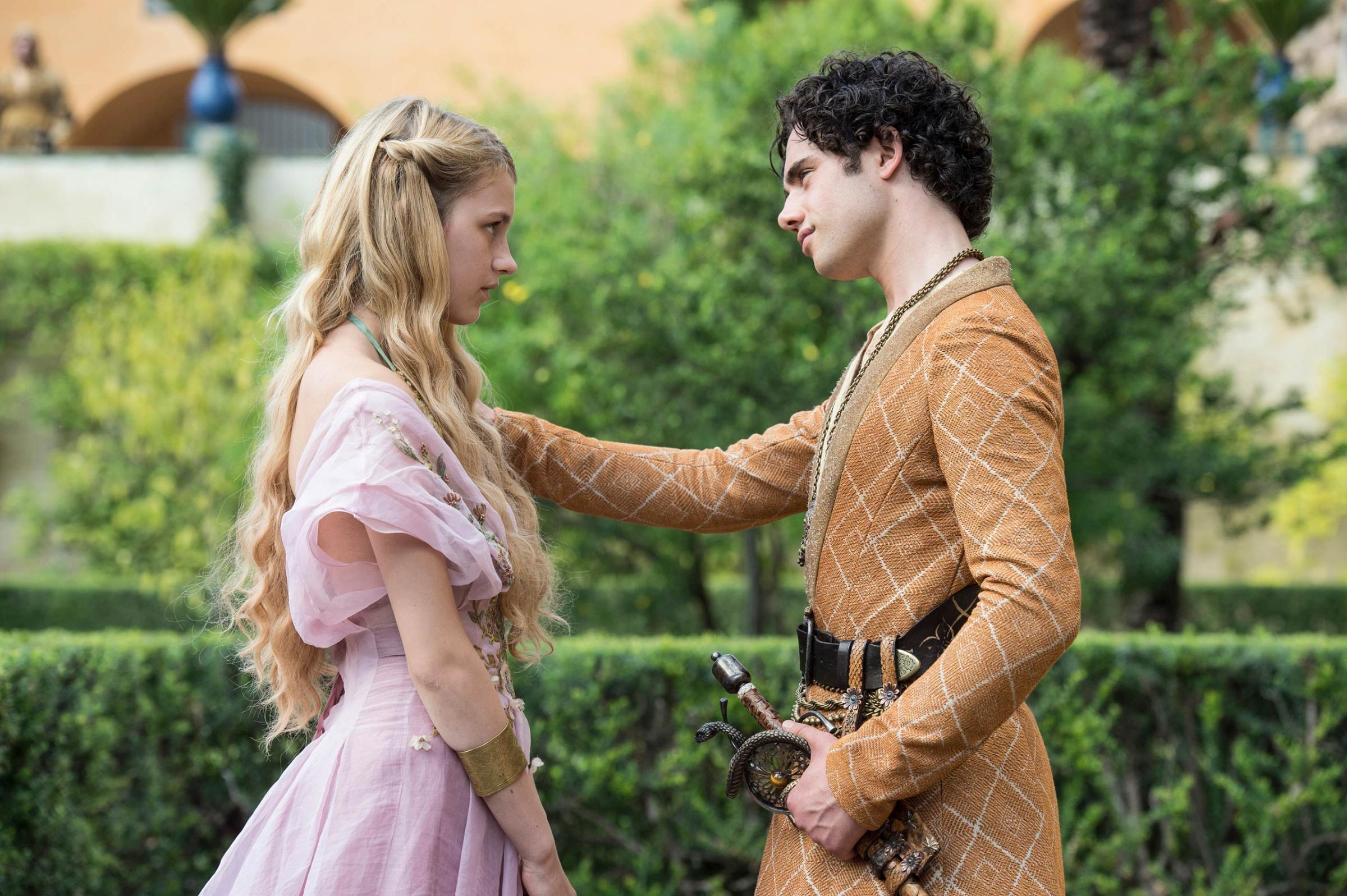

More Must-Reads from TIME
- Donald Trump Is TIME's 2024 Person of the Year
- TIME’s Top 10 Photos of 2024
- Why Gen Z Is Drinking Less
- The Best Movies About Cooking
- Why Is Anxiety Worse at Night?
- A Head-to-Toe Guide to Treating Dry Skin
- Why Street Cats Are Taking Over Urban Neighborhoods
- Column: Jimmy Carter’s Global Legacy Was Moral Clarity
Contact us at letters@time.com